There is a reason Rome is one of Europe’s most popular cities. With incredible sights like the Colosseum and St. Peter’s Basilica, it is easy to see why people flock here in droves each year. You will never be at a loss for things to do in Rome because Rome has something for everyone. From the many museums, and churches, to the historical sites and art galleries, it is a city that needs to be visited more than once.
In this post, we, along with our resident Rome expert, Karen will cover all the popular things to do in the city of Rome but also some lesser-known attractions that will make your trip to Rome even more enjoyable. So settle in and start planning your trip to this ancient city that was the heart of the Roman empire.
Table of Contents
Top Things to Do in Rome
With so many attractions in one city, it can make visiting Rome almost an overwhelming experience. But if you plan carefully and book your tickets in advance, Rome can be the city of your dreams. If you only have a short time in Rome then check out our guide on The Ultimate One Day in Rome Itinerary: How To Maximize Your Visit.
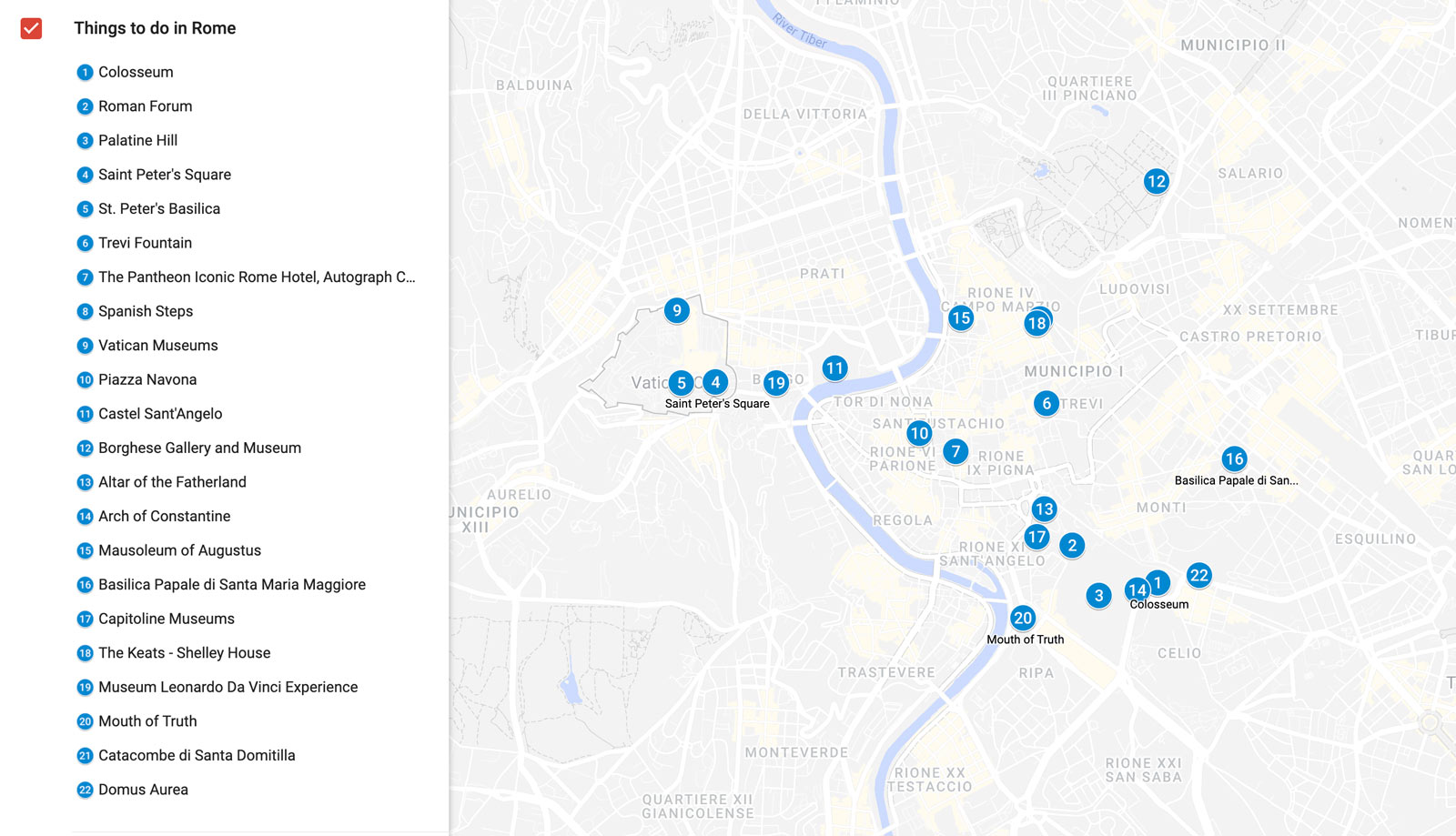
A great way to get around the city of Rome is to book a 24-hour hop on hop off River Cruise. The Tiber River runs right through the city center of Rome and with this ticket you can cruise through Rome taking in the beautiful sites such as Piazza del Popolo, Castel S. Angelo, and the Vatican City. There are four stops where you can jump off getting you close to many of the top tourist attractions.
When you have decided on all the magnificent sites you want to see, head over to our complete guide on Where to stay in Rome, and check out our 3 Days in Rome – The Ultimate Rome Itinerary
1. The Colosseum
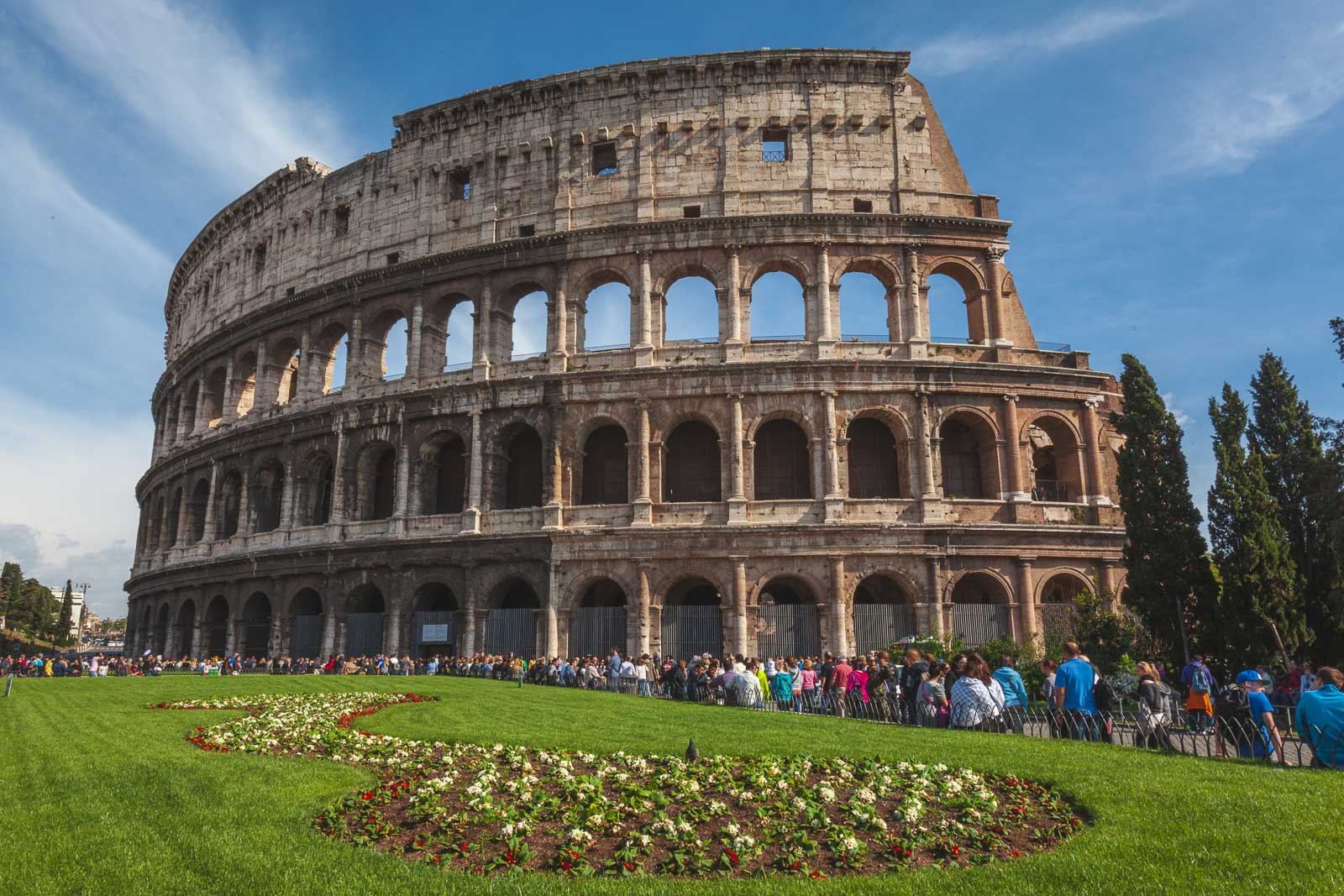
By far, visiting the Colosseum tops the list of things to do in Rome. You simply cannot leave the city without seeing it. Built between 70 and 80 AD the building was used for all sorts of different entertainment but most famously the gladiator tournaments.
It is said at one time it could hold up to 80,000 spectators. In order to really appreciate the beauty and history of this building, we recommend taking a tour. This allows you to step inside and really appreciate the Colosseum at its best.
If you decide not to book a tour, be aware that the line for tickets is usually insanely long and they only let in a certain number of visitors each hour.
You should definitely look at booking tickets in advance online if you want to see the Colosseum from the inside. These fast-track tickets get you into the Colosseum, Roman Forum, and Palatine Hill at your own timed entry by skipping straight to security.
2. Roman Forum
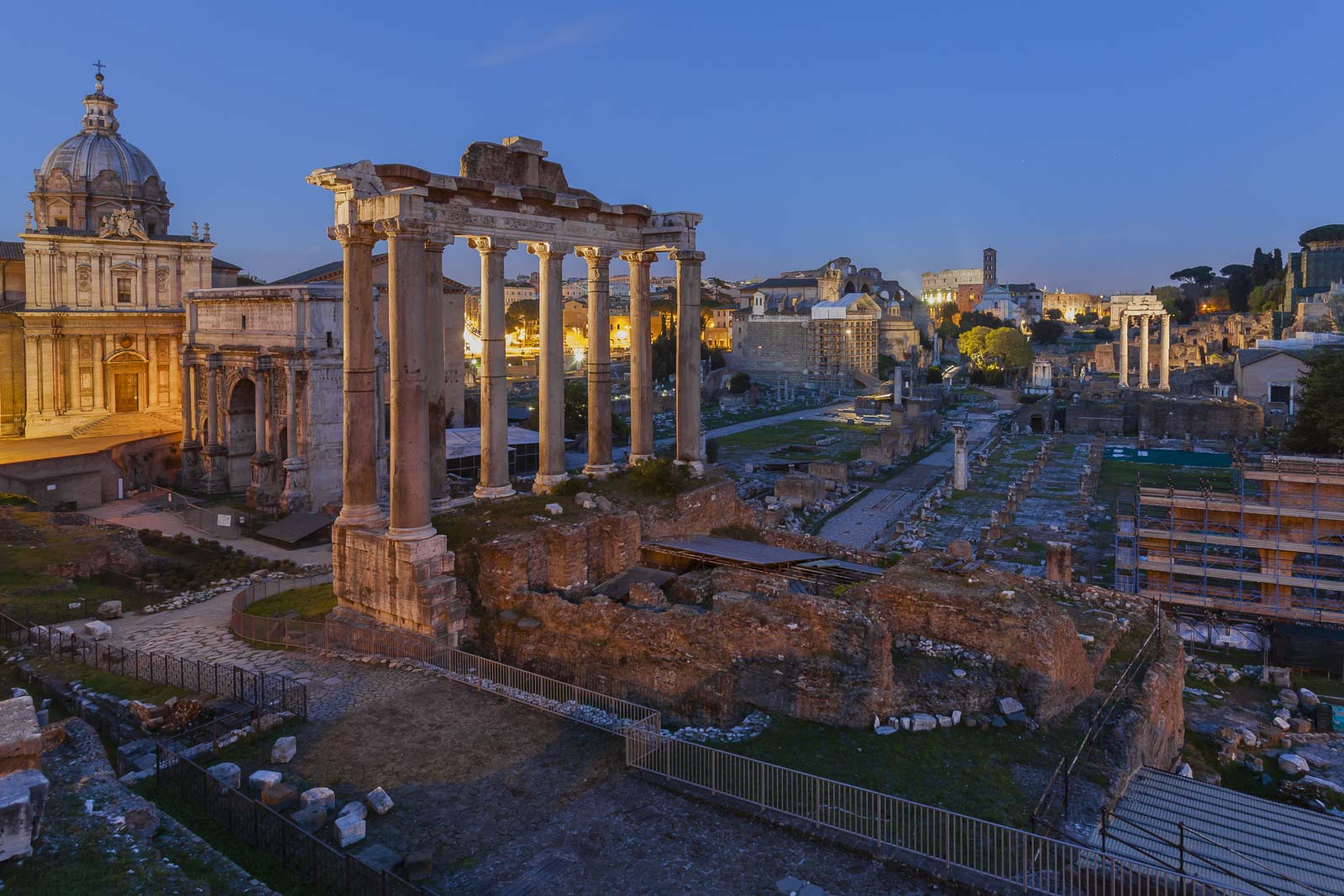
The Roman Forum has one of the most impressive views in Rome and is one top places to visit in Rome. This was the epicenter of ancient Roman life. Politicians, plebs, and preachers alike would connect here to buy or sell wares, worship in its many temples, or plan the Roman Empire’s next military move in the Curia.
This is also another of Rome’s most popular tourist attractions so it can be crowded. The good thing is that the online tours to the Colosseum usually include entrances to The Roman Forum and Palatine Hill as well as skip-the-line access.
The Roman Forum is located beside the Colosseum so you can easily visit both on the same day. We recommend combining them into one private tour. Meet your guide with a skip-the-line entrance ticket to learn about the history and events that took place in the days of Ancient Rome.
If you want a beautiful view of the area make sure to visit at sunset when the sky is beautiful and the lights have just come on. It is possible to take tours of the Colosseum at night as well.
3. Palatine Hill
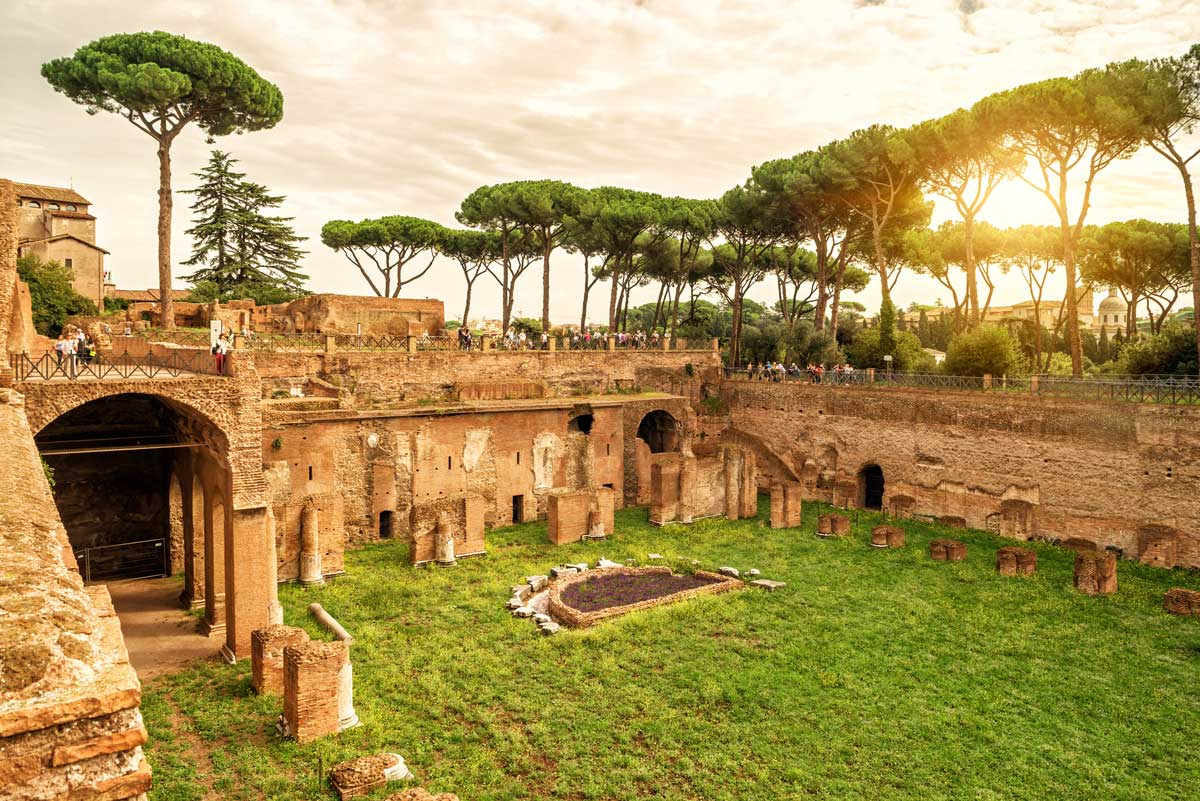
A short walk up from the Roman Forum that is often overlooked is this extensive archaeological site, Palatine Hill. This was the Beverly Hills of Rome and it is my favorite spot in the city. Walk up to enjoy some peace and quiet in the center of the city in Rome’s original elite neighborhood.
Palatine Hill first became sought after for its mystical connections, because it is thought that Rome’s founders Romulus and Remus were found in the Lupercal, a cave beneath the hill. It was then home to luxurious villas and mansions for emperors. Your Colosseum combined tickets include skipping the line to Palatine Hill as well
There are a lot of lesser-known but very interesting sites to visit here: the Palatine Museum, House of Augustus (the first Caesar), House of Livia (his wife), Flavian Palace (ruins), Neronian Cryptoporticus, and the Stadium of Domitian. It is also an ideal spot for a picnic and to watch the sunset. Take this guided tour for the stories and history behind each site.
4. St Peter’s Square
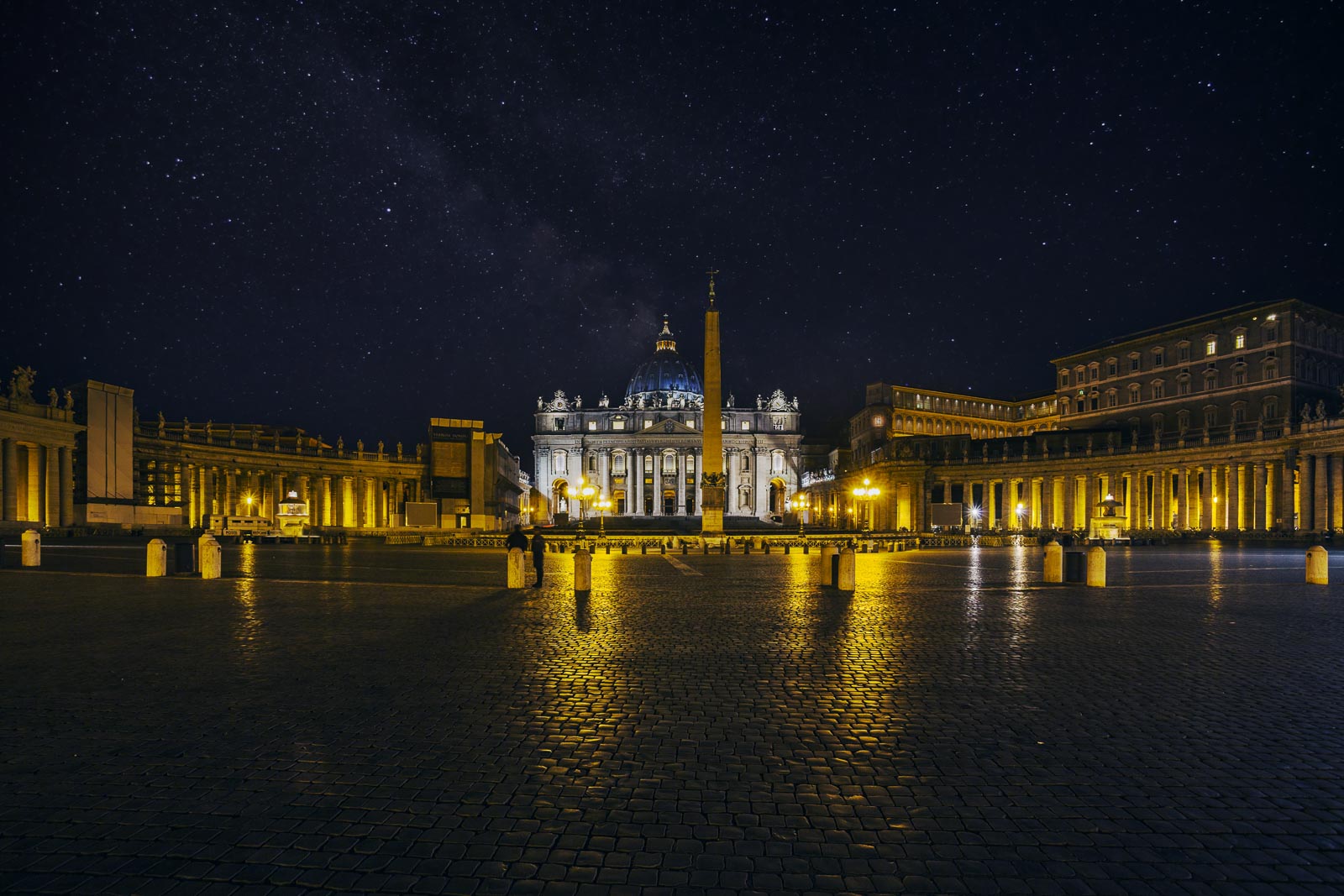
It is strange that one of the best things to do in Rome is located in another country which is inside Rome – Vatican City. This independent state is by far one of the most famous religious sites in the world and St. Peter’s Square sits at the heart of it.
The square, which is actually circular, is very impressive. Framed by 2 huge sets of colonnades, which are topped with statues of famous religious figures and previous popes, it is hard not to be blown away by the grandness of it all.
At its center stands an obelisk that was taken from Nero’s Circus, which adds to the square’s impressiveness. Take a stroll around the square and admire the architecture as you head to the far end where you will find St. Peter’s Basilica.
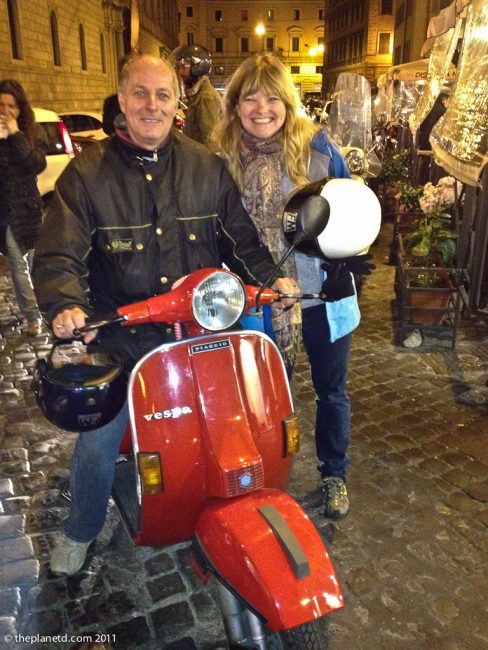
We saw it during the day and then visited again at night on a Vespa Tour. It was magnificent to see the iconic Roman ruins and Eternal City at night made even more special while on a classic Vespa. I felt like Audrey Hepburn being chaperoned around by our knowledgeable guide. We ended our quintessential Rome experience with gelato and Italian coffee.
5. St Peter’s Basilica
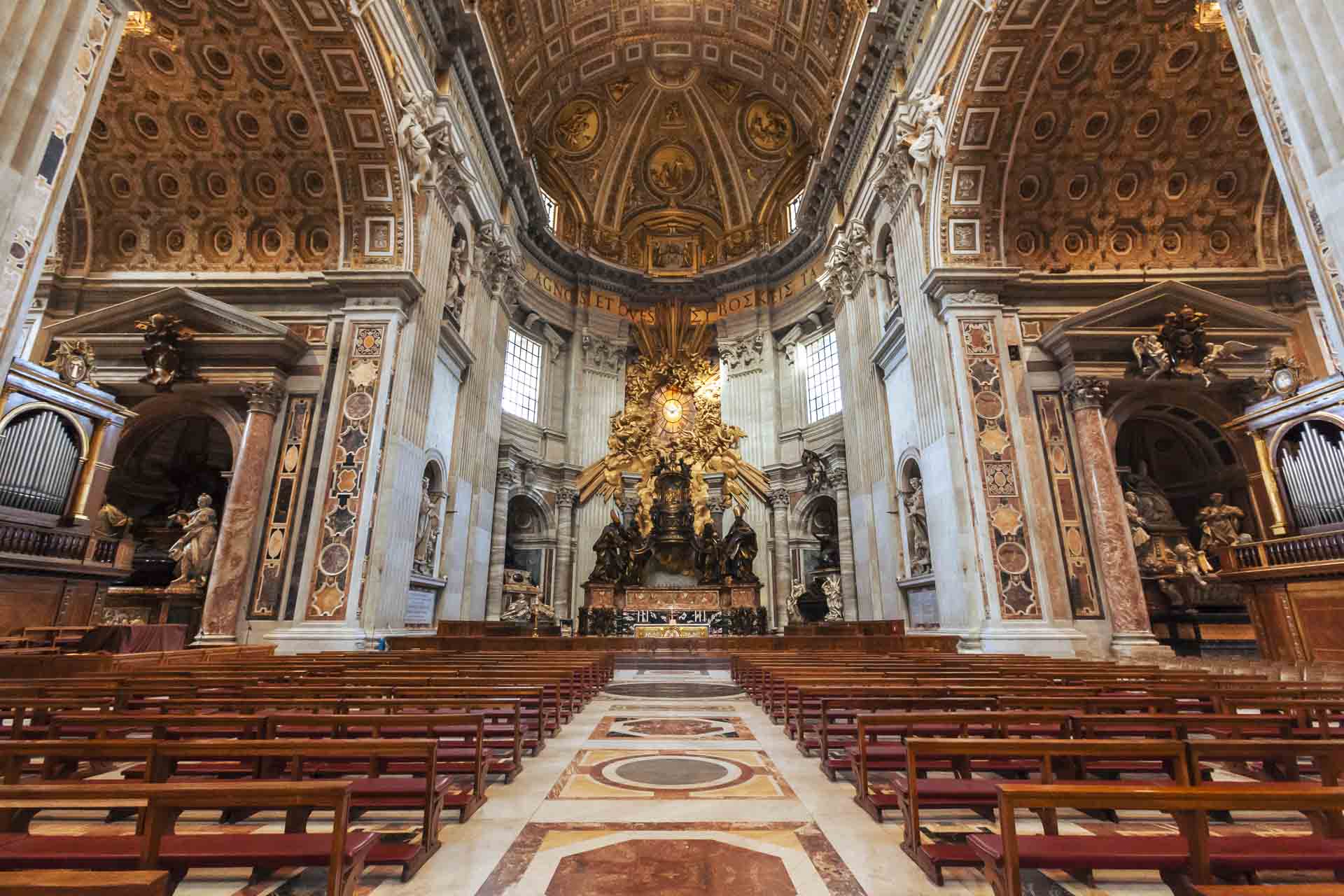
After being greeted in St Peter’s Square by the welcoming “arms” of the statues of 140 saints, walk into the star attraction that is St. Peters Basilica. (Basilica Di San Pietro). Though impressive from the outside, it isn’t until you walk inside that you appreciate the true beauty of this building that Michelangelo and Bernini contributed to.
Make sure to look for Michelangelo’s Pieta on the right as you enter, the statue of St. Peter’s father to the right where his toe is worn away from devotees touching it in prayer. Bernini’s intricate Baldachin is the centerpiece, with St Peter’s actual tomb right beneath it, and Michelangelo’s famed dome above.
For an incredible view that includes the square as well as Castel Sant’Angelo and the Tiber River take the stairs or the elevator up to the dome. It is one of the best views of the city.
This highly rated tour takes you on a guided walk through St. Peter’s Square, and inside to view its incredible mosaics. Follow the spiral staircase as your guide tells you of the art and splendor inside as you make your way up to the highest point in the Vatican for panoramic views of Rome. You’ll then go underground to see the Papal Tombs where Popes and royals have been laid to rest since the 11th century.
6. Trevi Fountain
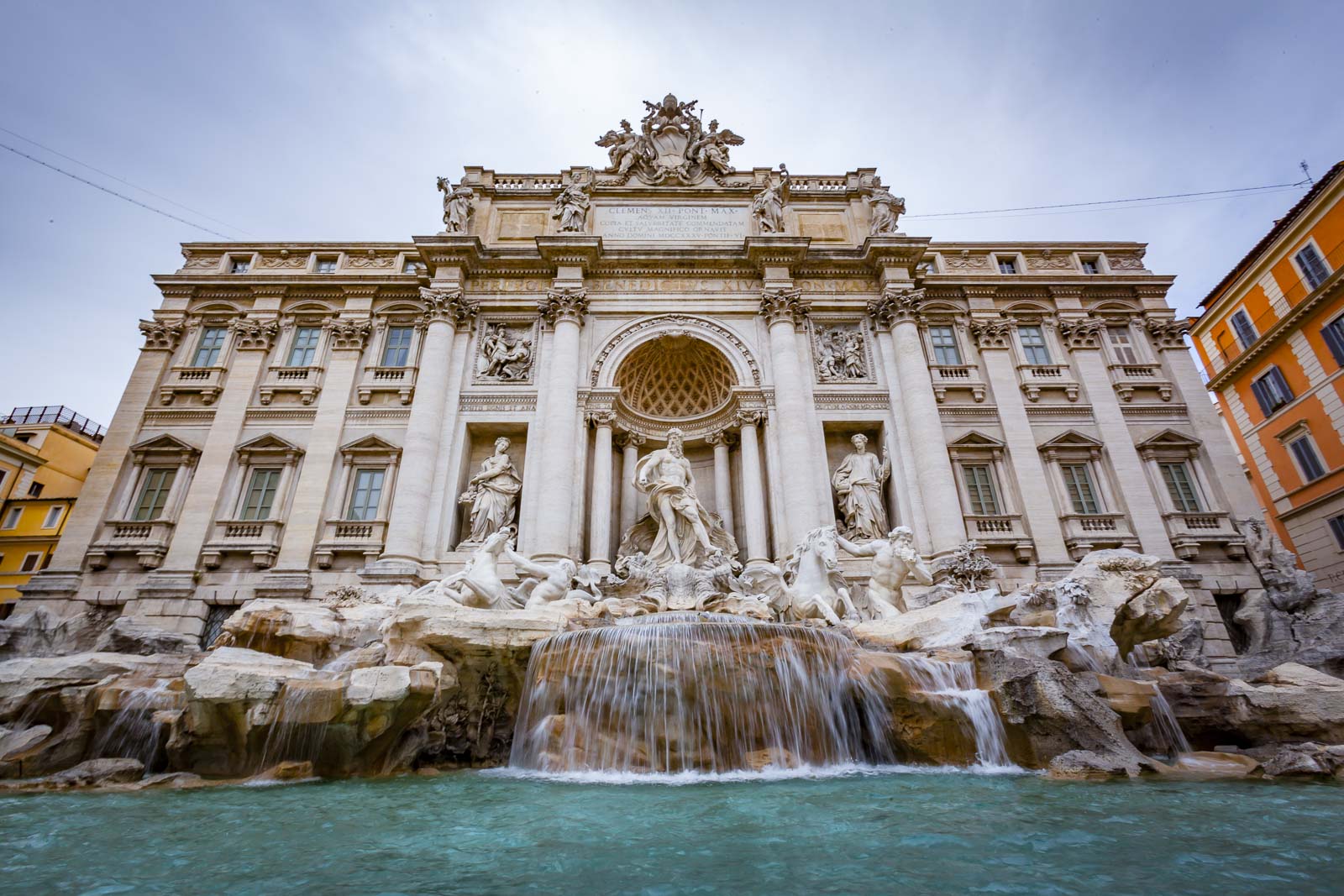
The Trevi Fountain is Rome’s most famous fountain located in the heart of the city center. Designed by Nicola Salvi, it has been one of the most popular Rome attractions since its unveiling in 1743. It is also famously featured in La Dolce Vita.
After its 2015 sandblast facelift – paid for by Roman fashion house Fendi at a cost of $2.4 million – the fountain’s gorgeous white travertine stone statues of Oceanus with his chariot pulled by two Tritons and two seahorses are shining like new. (Travertine is also the material used for building most of the Colosseum).
Most roads in the Centro Storico lead to it, as it converges at three roads – tre vie – hence its name Trevi. Take your obligatory selfie before throwing a coin over your shoulder into the water of the Trevi Fountain to ensure your return to Rome. As one of Rome’s most popular tourist attractions, it can be very crowded by the fountain, but we visited the Trevi Fountain at night and had it all to ourselves.
7. The Pantheon
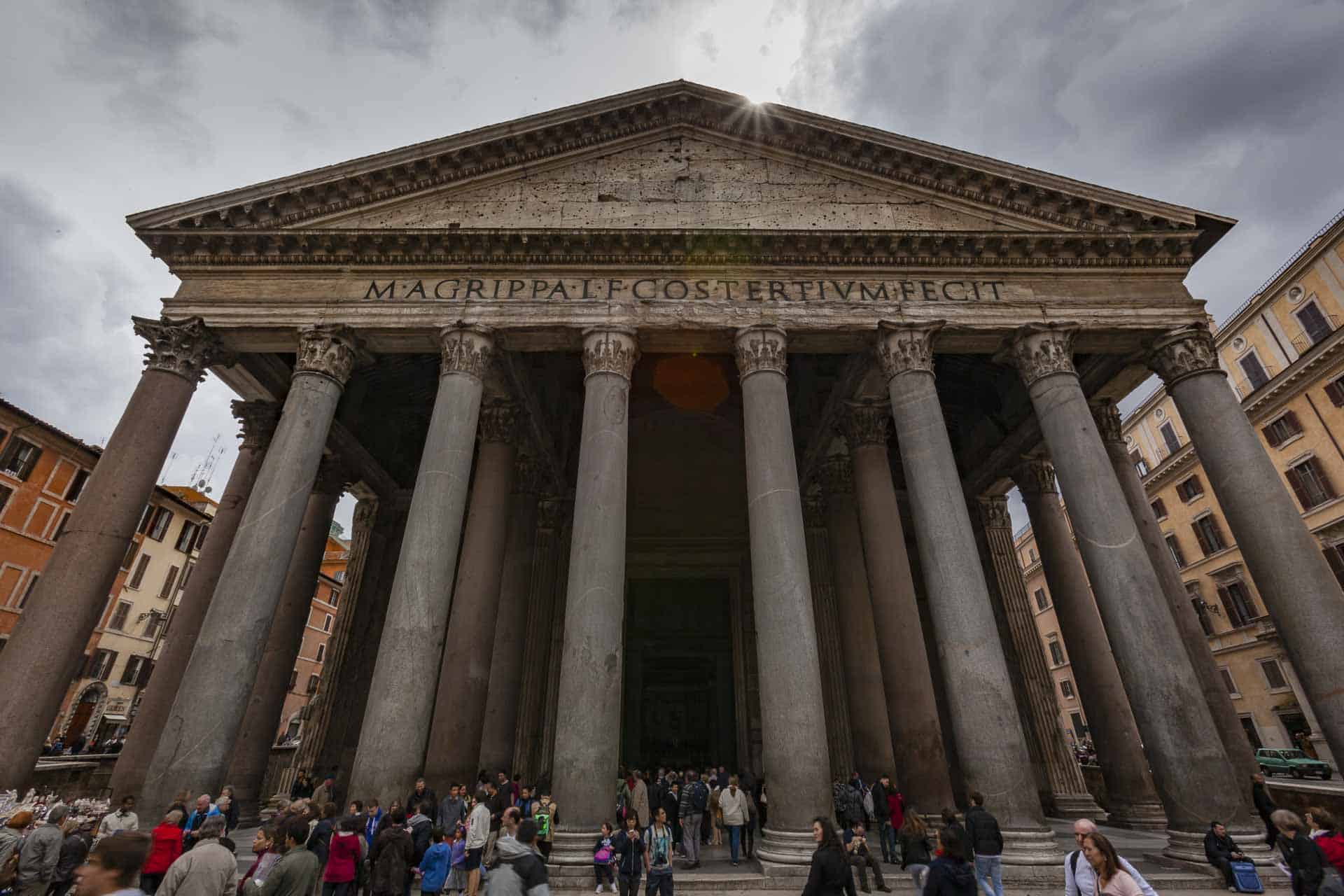
One of Rome’s top attractions is the Pantheon. Located in the city center, it is one place you must visit. The Pantheon is considered one of the best-preserved buildings in Rome. Built-in 126 AD by Emperor Hadrian, this Roman temple, which is now a Catholic church is free to enter and is just as impressive on the inside as it is from the Piazza Della Rotonda.
You will be impressed by the massive dome inside as well as the statues and frescoes that line the walls. Grab the audio guide if you want to learn more about this beautiful building. We recommend visiting the inside during the day and coming back at night to see the outside in all of its glory.
8. Spanish Steps
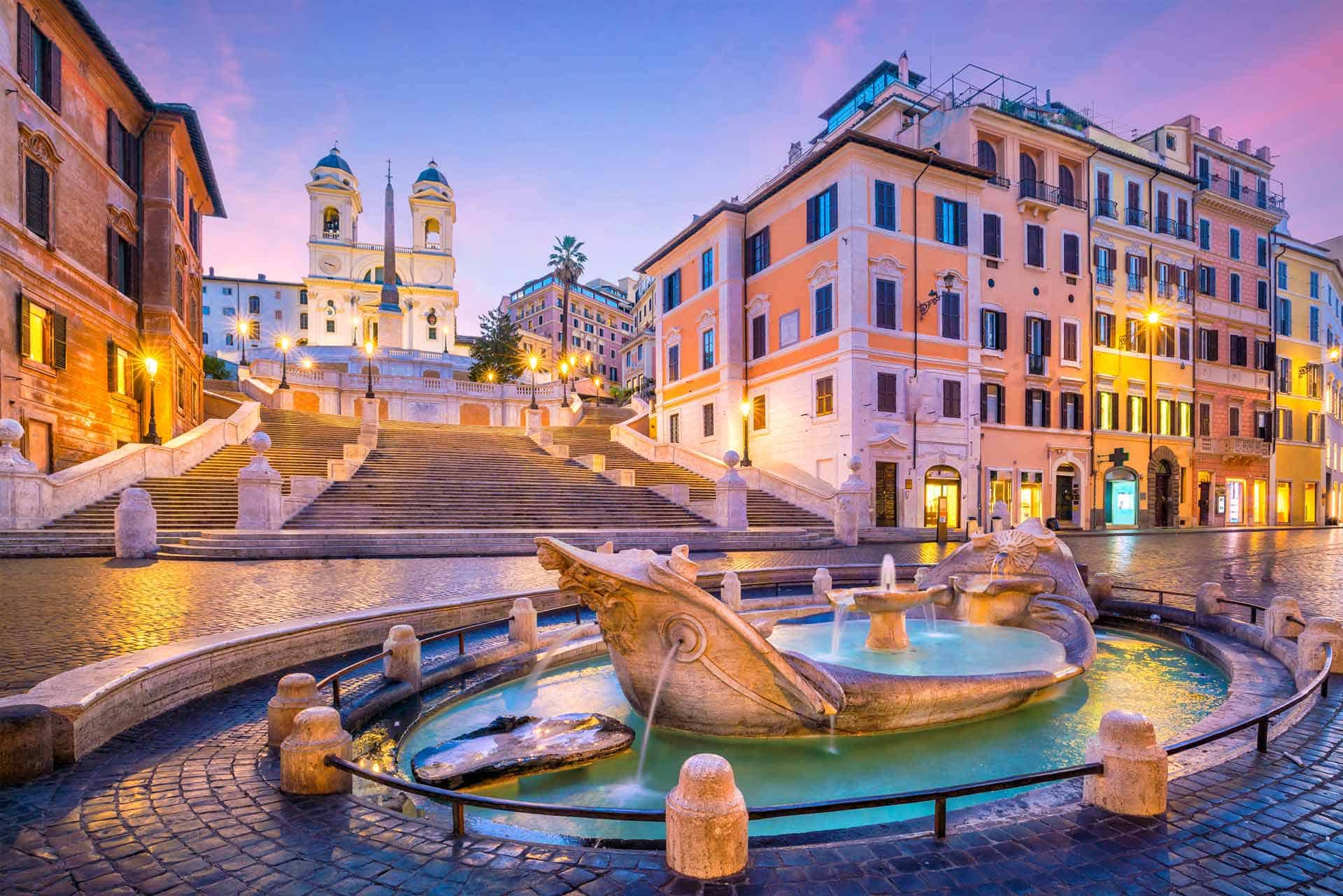
Continuing your stroll through the old city center is another popular tourist attraction in Rome, The Spanish Steps. The Spanish steps were not designed by a Spaniard but by Italian architect Francesco de Sancti. Their name comes from their proximity to the Spanish Embassy.
The Spanish Steps are one of the best places in Rome to sit and relax with a gelato and people watch. Artists have been coming here since the early 1700s to find muses and models, and nowadays it’s a selfie-taking hub.
Two charming squares top-and-tail the 138 steps. The Piazza Trinita de Monti above with the twin tower church outlining it, and the lovely Piazza di Spagna below. The latter has an impressive fountain Fontana Della Barcaccia (Fountain of the old boat) by Pietro Bernini (father of Gian Lorenzo Bernini whose sculptures pepper Rome) takes center stage.
9. Vatican Museums and Sistine Chapel
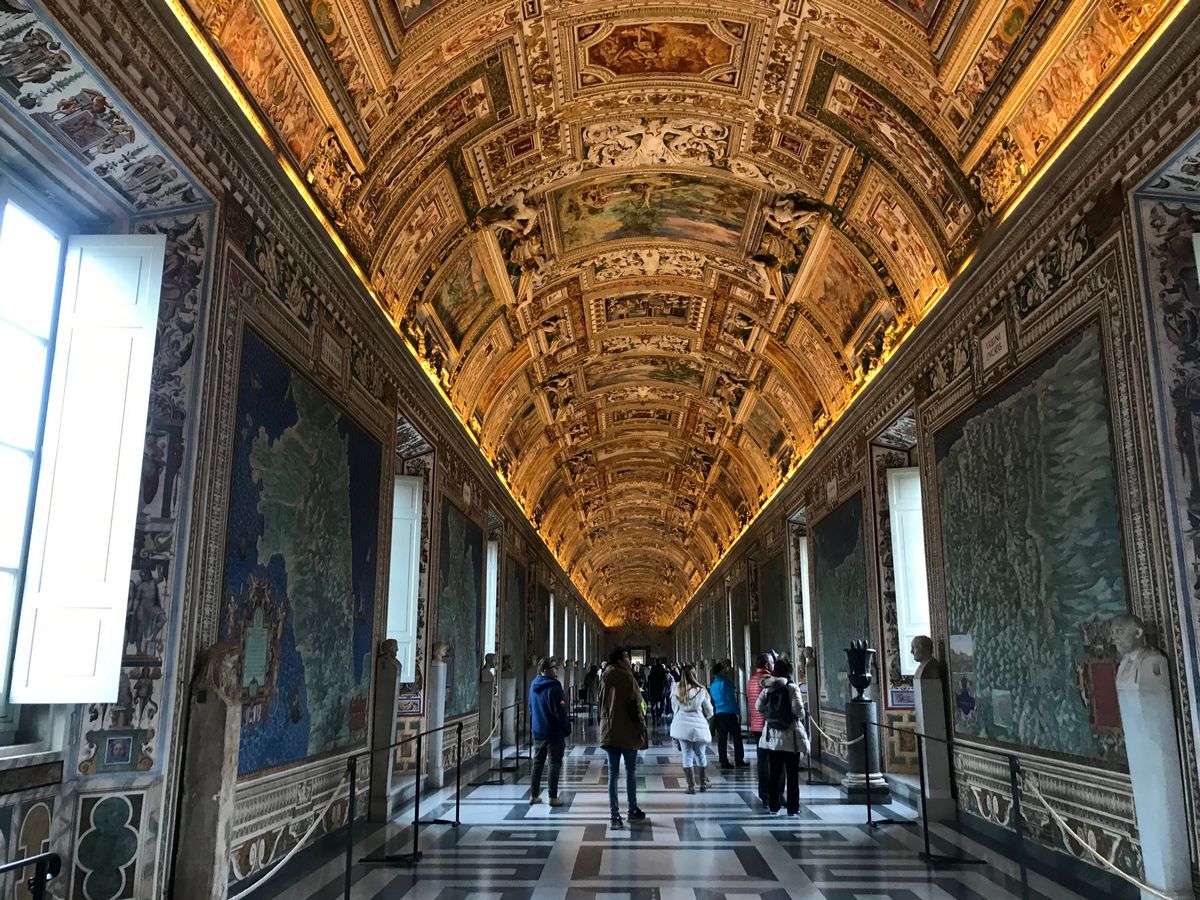
A must-see in Rome for any art-lover, this world-renowned museum, located in Vatican City, has over 2 million pieces in its collection and is truly magnificent. A dual ticket can be purchased to see both the Sistine Chapel and the museums and is worth the money.
My recommendations for a route to follow that will take around two and a half hours and incorporate main exhibits are: Pio Clementino Museums (sculptures), Hall of Tapestries, Maps Gallery, Raphael Rooms, Sistine Chapel (of course), and Pinacoteca (Picture Gallery), and admire the famous Bramante spiral staircase on your way out.
Sistine Chapel
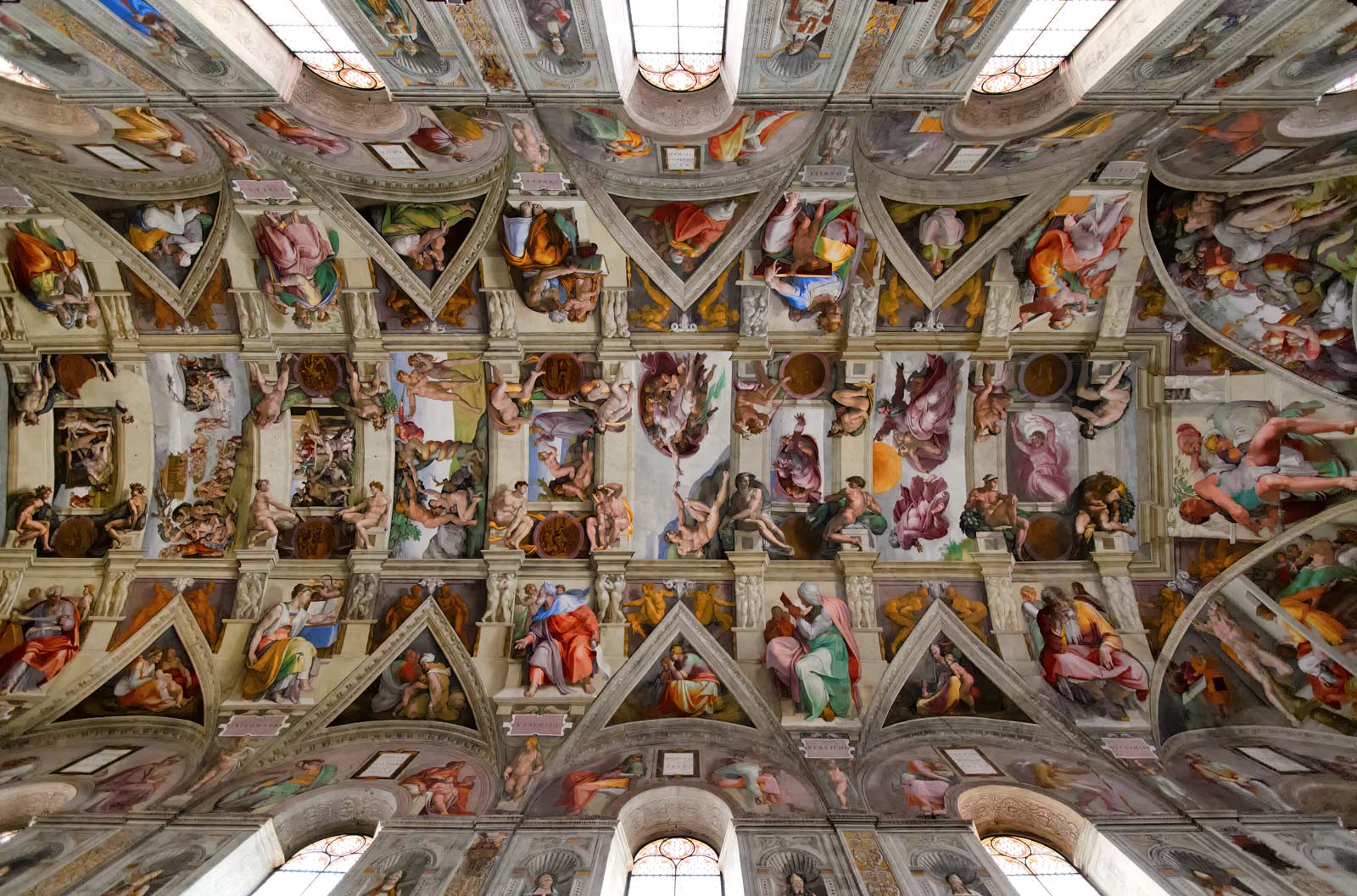
The Sistine Chapel is part of the Vatican Museums and is included with your tickets. The crown jewel of the Vatican is not to be missed where you’ll marvel at Michelangelo’s fresco “The Creation of Adam” and its ceiling. They are regarded as the most exquisite religious art in the world.
The museums and Sistine Chapel are the most popular tourist attraction in Rome, so book your tickets online in advance to skip the line. Or if you want to go on your own, wait until about midday to avoid the morning lines.
10. Piazza Navona
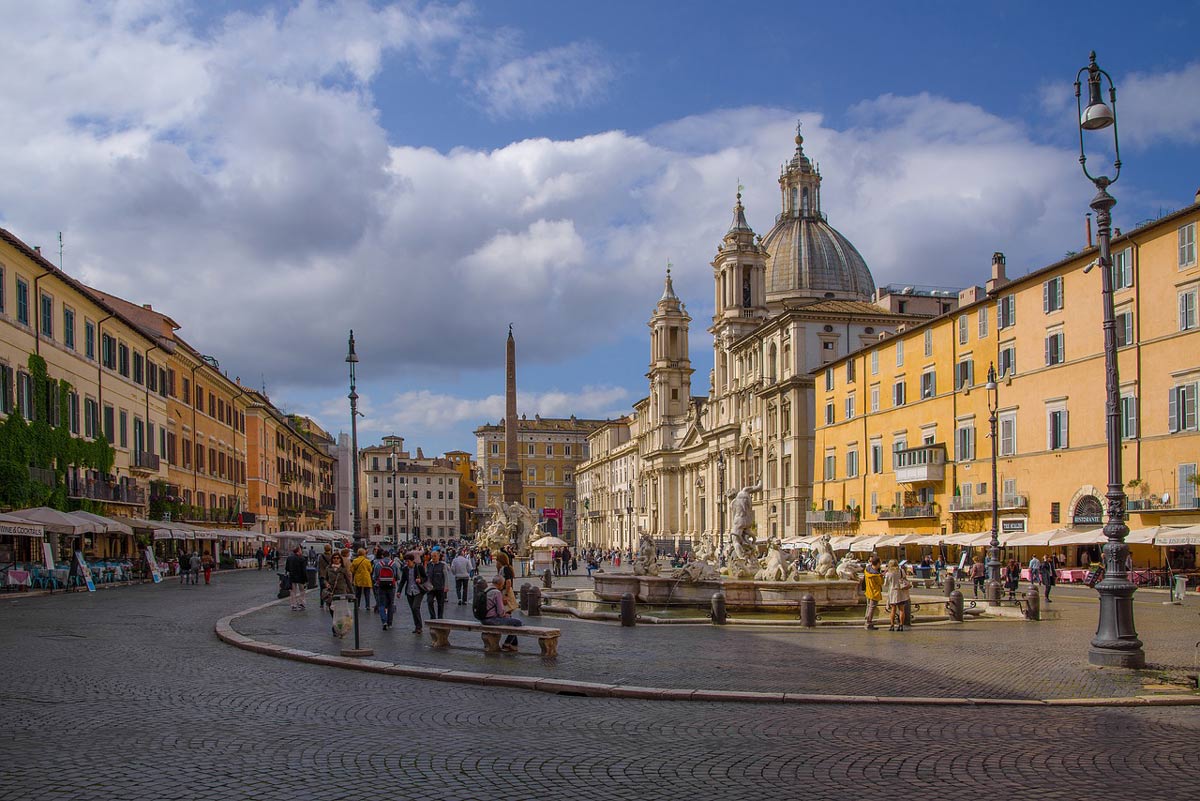
The Piazza Navona is probably the most beautiful Piazza in Rome. Built on top of what was originally a stadium in ancient Rome it is accented by the Fontana Dei Quattro Fiumi by Bernini that is at its center. The Fontana Dei Quattro Fiumi was built in 1651 and depicts the four river gods with a large Egyptian Obelisk at its center.
The Obelisk is based on the four rivers of the Danube (Europe), the Nile (Africa), the Ganges (India), and Rio de la Plata (Americas), which were the most known rivers of the four corners of the world at that time. Make sure to add this to your list of things to see in Rome.
Right behind it is the stunning church Sant’Agnese, which is dedicated to St Agnes who was martyred in the Piazza Navona. Built by Bernini’s rivals Borromini, and Rainaldi, it is gorgeous and well worth going inside to take in the impressive gold dome, Borromini sacristy, and crypt.
11. Castel Sant’Angelo
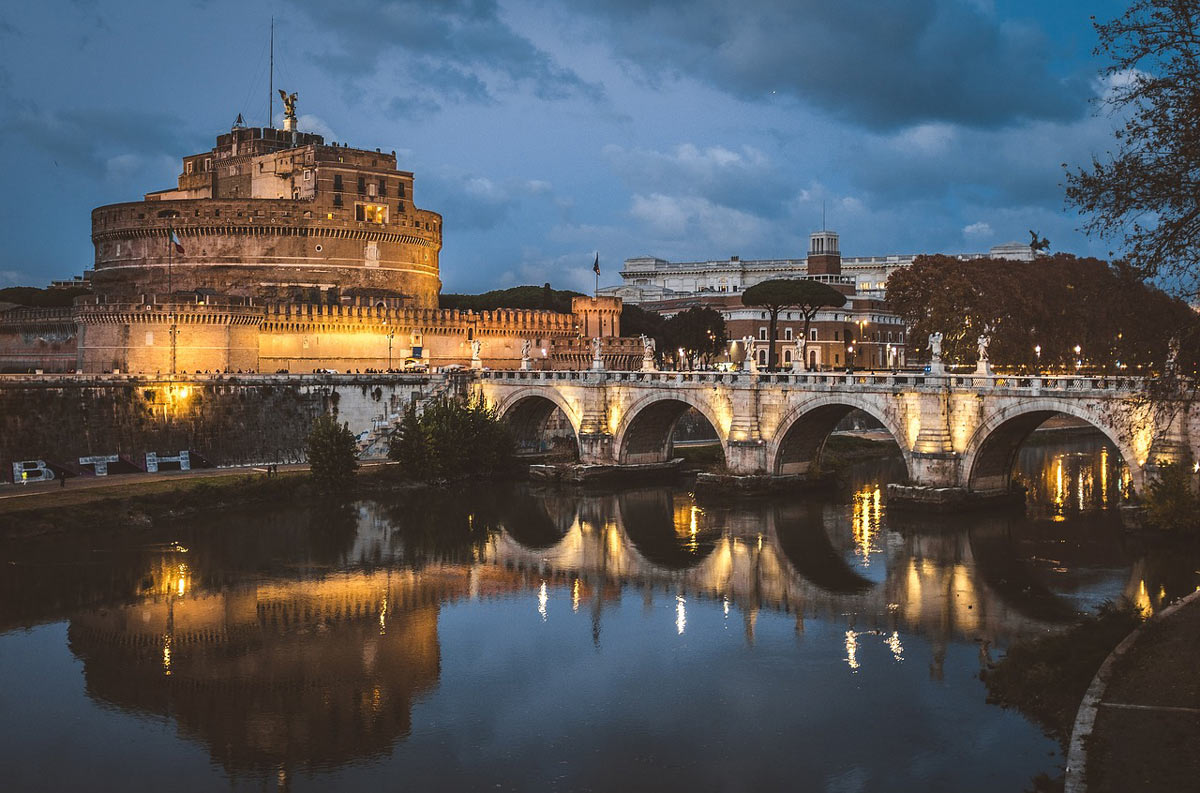
Castel Sant’Angelo was built in 135 AD by Emperor Hadrian. It is not only a great museum but also a great place for sunset. The view from the top is simply stunning and worth taking in.
The museum itself is 5 floors and inside you will find catapults as well as the papal residence that was used by the Pope when there was a deadly plague in 590 AD.
Don’t forget to take your time approaching the Castel. The Ponte Sant’Angelo is a sight to behold. When the sun goes down and the bridge and Castel light up it is one of the most beautiful sights in Rome.
12. Villa Galleria Borghese and Gardens
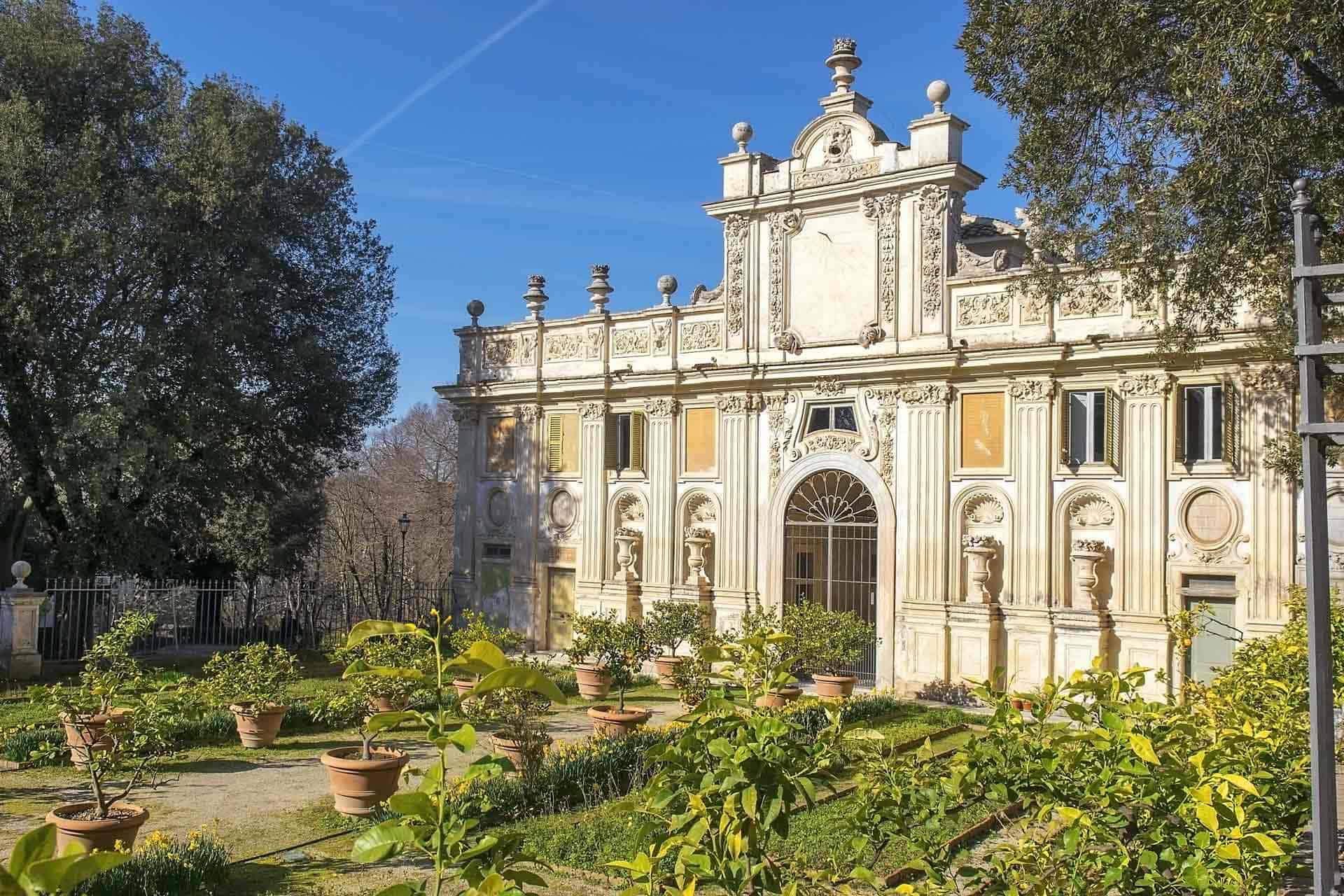
One of Rome’s most influential family legacies was the Borghese. Originally from Sienna, they moved to Rome through connections to the Papacy. Scipione Borghese, a nephew to Pope Paul V, was made cardinal and used his position and wealth to build and furnish the Villa Galleria Borghese with incredible ancient, Renaissance, and contemporary art.
Its impressive art collection houses paintings by Caravaggio and sculptures by Bernini are some of the highlights of this grand villa museum brimming with masterpieces. Art lovers should definitely put this on their list of places to visit in Rome.
The Villa Galleria Borghese Gardens is another sight to behold as it is one of the largest gardens in Rome that occupies around 200 acres of land.
The free park is a great spot for a picnic. Other things to see along with the lovely gardens and fountains are the Bioparco (Rome Zoo), Pincio’s water clock, and Silvano Toti Globe Theatre which is a replica of Shakespeare’s Globe Theatre.
13. Altare Della Patria – Altar of the Fatherland
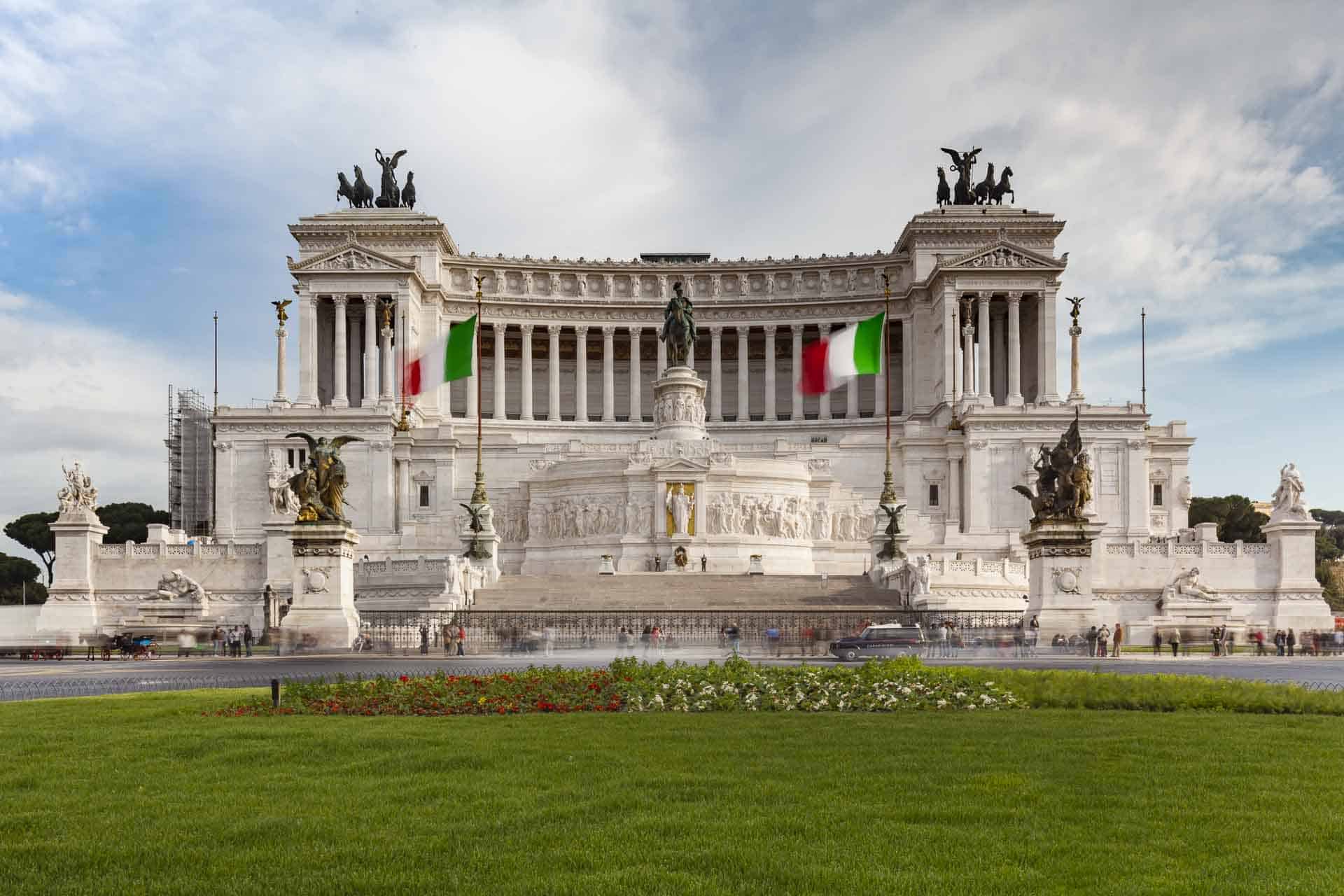
The Altar of the Fatherland in Rome is an imposing marble building that has the nicknames “the wedding cake” or “typewriter”. It is a monument to Italy’s first king Vittorio Emmanuelle II and is situated at the bustling Piazza Venezia.
Above the grand staircase sits the grand equestrian statue of King Victor Emmanuel, with statues of two chariots being driven by the goddess Victoria behind him atop the building.
The view from the stairs of the Piazza Venezia is lovely, but you can go further by taking the platform lift to the top of the building to appreciate a full vista of the Centro Storico from a viewing platform between the two chariot statues.
The monument was quite controversial as its construction destroyed a large Medieval neighborhood and a huge area of Capitoline Hill. Many also think it is pompous and too enormous. The white marble stands out in a sea of earth-colored buildings, which is also why it isn’t popular with too many locals.
14. Arch of Constantine
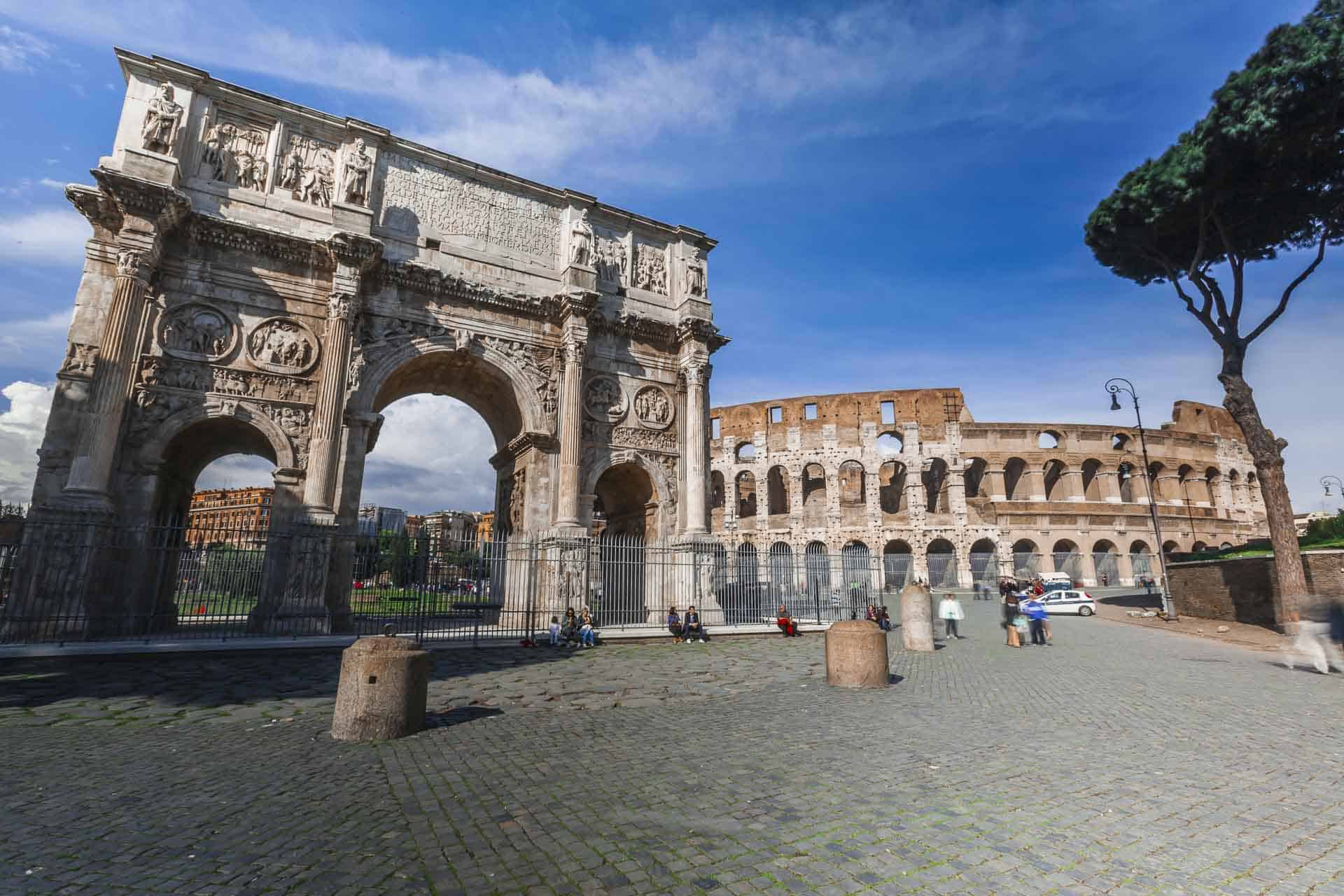
The Arch of Constantine sits next to the Colosseum and is one of the oldest structures in the city. It was built in 315 AD to celebrate Constantine’s victory at the Battle of Milvian Bridge. You can’t miss it as it stands 21m high and is in great shape considering its age.
The detail in its artwork and facade are some of the most beautiful in Rome. After your time in the Colosseum make sure to stop here and admire one of Rome’s iconic landmarks.
15. The Mausoleo di Augusto
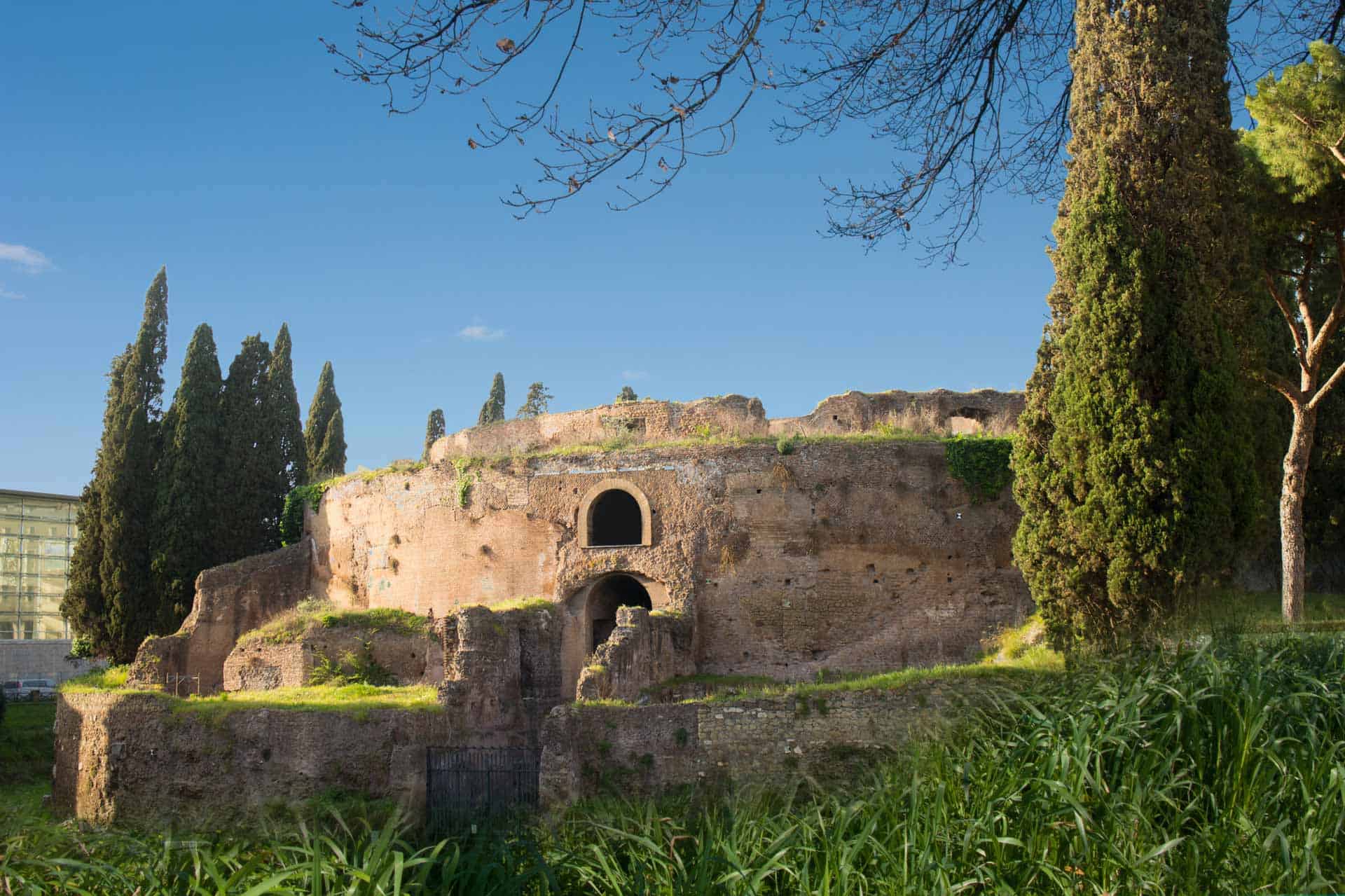
This tomb of Rome’s first ruler was under construction for 14 years and was finally opened in 2021. Prior to that, it was closed to the public for 80 years. This is one of the newest and one of the most impressive structures to be re-opened in recent memory, so you are not going to want to miss this.
The Mausoleum of Augustus is the resting place of the city’s first emperor who was named in 44 BCE. His tomb is the largest circular tomb in the ancient world, measuring 90 meters in diameter and 45 meters in height.
Over the years, up until 1936, it has been used as many things like an amphitheater, bull ring, and concert hall.
16. People Watching at the Squares
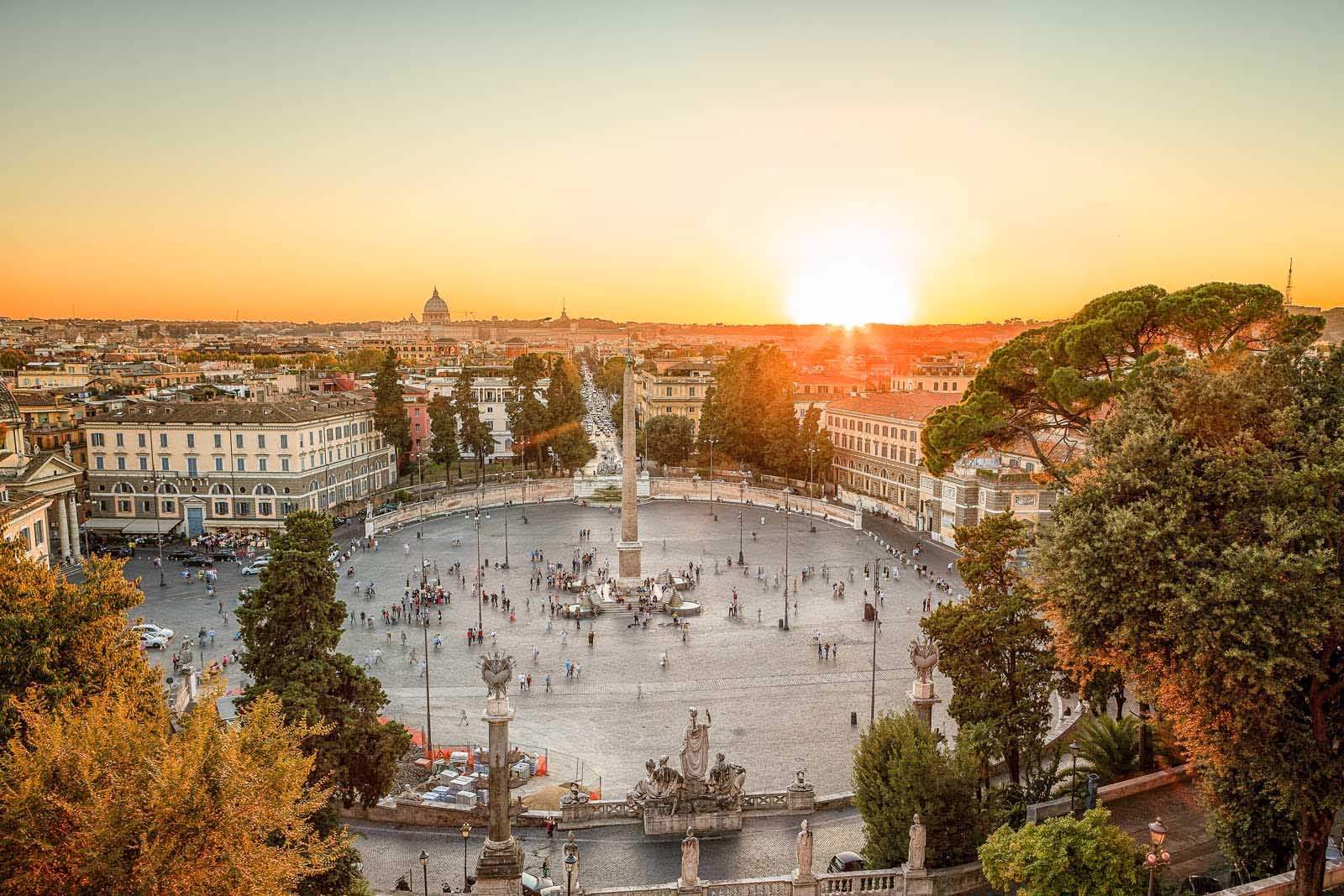
Rome is a perfect city for people-watching and there is no better place to do than in one of the Piazzas that are scattered around the city. Grab yourself a bite to eat and a drink and head to one of the famous squares.
Two churches frame the square, Santa Maria dei Miracoli and Santa Maria in Montesanto are beside each other and are nearly identical.
As well as the ones we mentioned above (Piazza Navona, Piazza di Trevi, Piazza di Spagna) Campo de Fiori, and Piazza Venezia we recommend Piazza del Popolo.
Piazza del Popolo (The People’s Square) was designed to welcome pilgrims to Rome. While there, make sure to climb up Pincio hill for an overview of Piazza del Popolo and its 36-meter (118 feet) high Egyptian obelisk.
All of the squares are free to enter and if you take a stroll early around the city center in the morning you can get a feel for what Rome is like before it erupts into a bustling city.
17. Santa Maria Maggiore Basilica
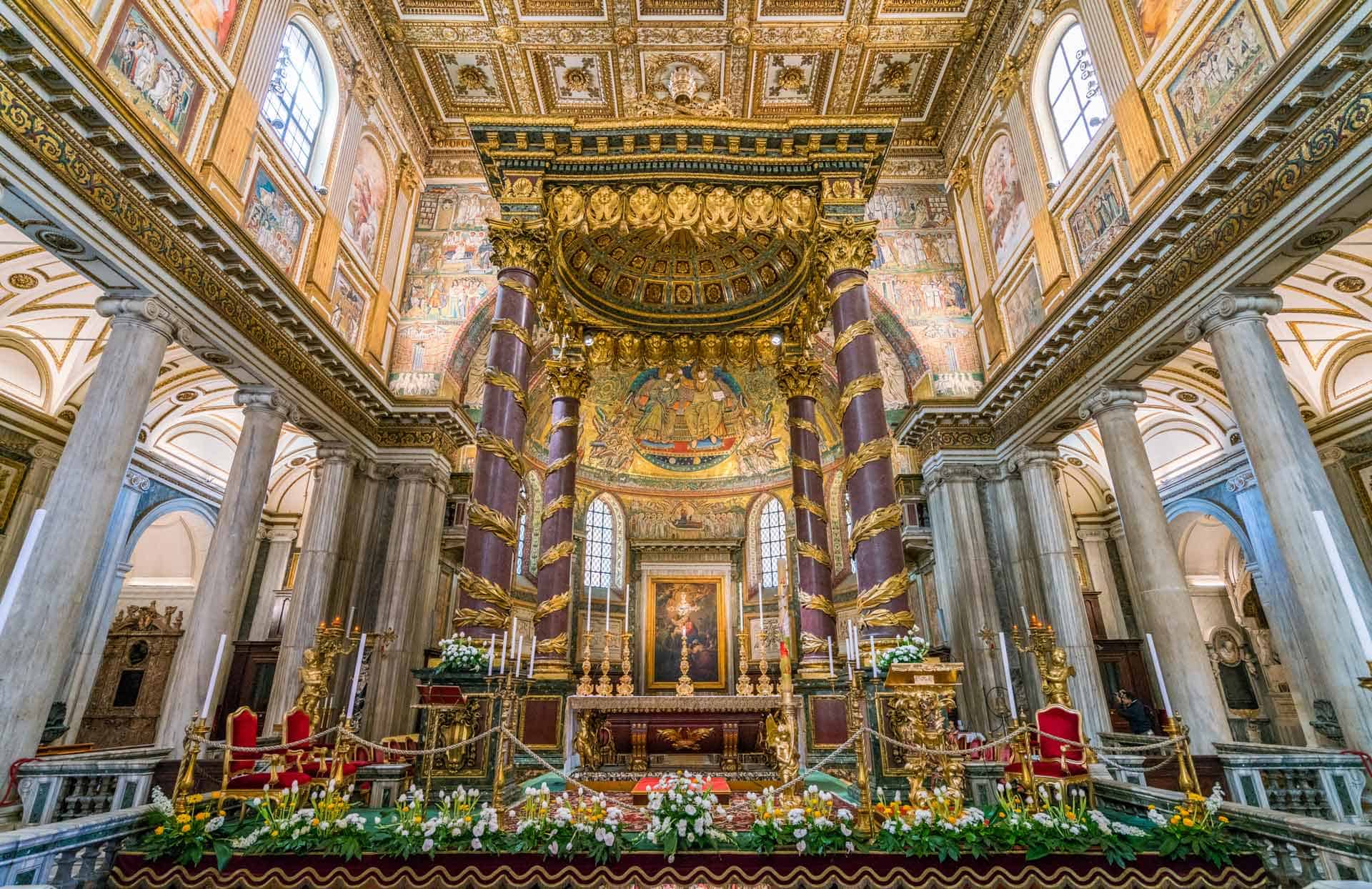
Rome is full of many different Basilicas, but Santa Maria Maggiore is one of the more impressive ones. Built in the mid 4th century and renovated in the 18th century it is one of the largest churches in Rome and is a great example of both Christian and Baroque styles.
The interior of Santa Mari Maggiore will take your breath away with its selection of statues, frescoes, and paintings on the walls, floors, and ceiling. It is also where the architect/sculptor Bernini is buried. It is free to enter, so make sure to give yourself some time to admire the beauty of this structure. It is worth going inside.
18. Capitoline Museums
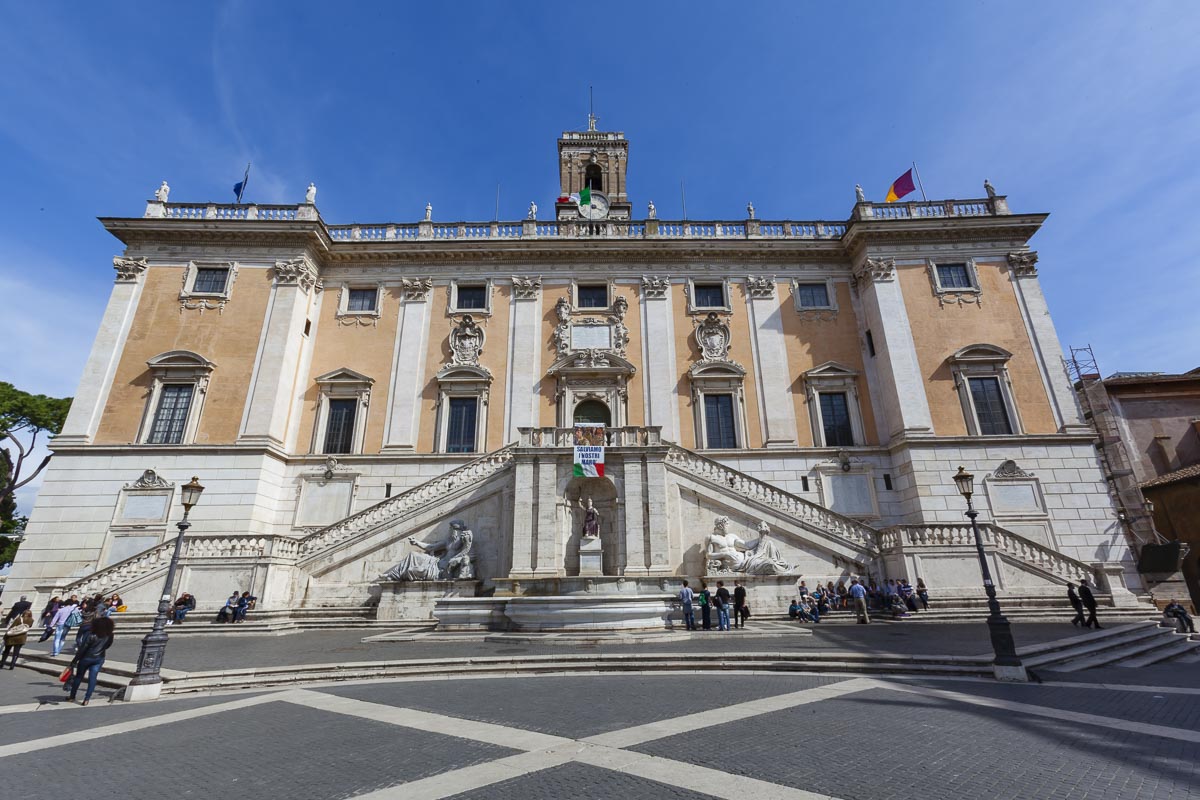
One of Rome’s seven hills – the Capitoline Hill – is home to the fantastic Capitoline Museums, which have been there since 1471. Most of the museum’s contents are from Rome itself. Highlights not to miss are; the bust of Commodus as Hercules, the Bust of Medusa by Bernini, the Hall of Hannibal, and the bronze masterpiece The Capitoline She-Wolf.
The museum’s collections are housed in the beautiful buildings flanking the square – the Palazzo Nuovo (new palace) and Palazzo dei Conservatori (palace of curators). On the right, the Palazzo Senatorium is the seat of the Rome city council.
In the nearby majestic Piazza del Campidoglio, a copy of an equestrian statue of Emperor Marcus Aurelius takes pride in its place. Michelangelo was commissioned to design a square but his plan was so grand that he never did see the completed work. It is considered one of the most beautiful squares in Rome.
19. Keats-Shelley House
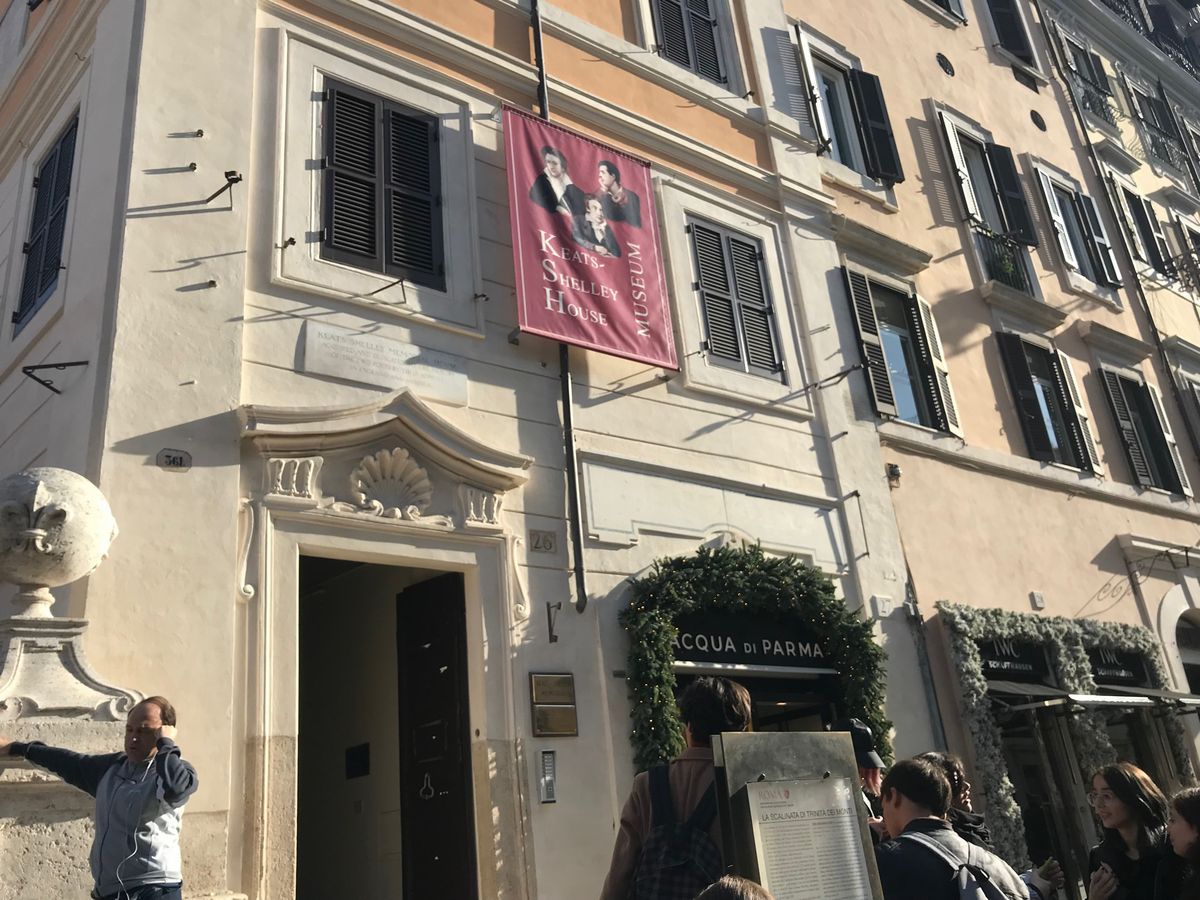
In the Piazza di Spagna, directly to the right of the bottom of the Spanish steps is one of Rome’s most charming museums and hidden gems. The Keats-Shelly Memorial House is dedicated principally to poets John Keats, who lived and died in the house in 1921, and Percy Bysshe Shelley who spent much of his short life in Italy.
This small museum contains one of the finest libraries of Romantic literature in the world with 8,000 volumes that pay homage to these poets and English Romanticism in general. Along with its books, there are many paintings, manuscripts, sculptures, and memorabilia.
The house is also a culturally important venue in Rome hosting concerts, poetry readings, contests, talks and viewings of first edition books and documents. Check their website for events happening while you’re in Rome in case you’d like to partake.
20. Leonardo Da Vinci Museum
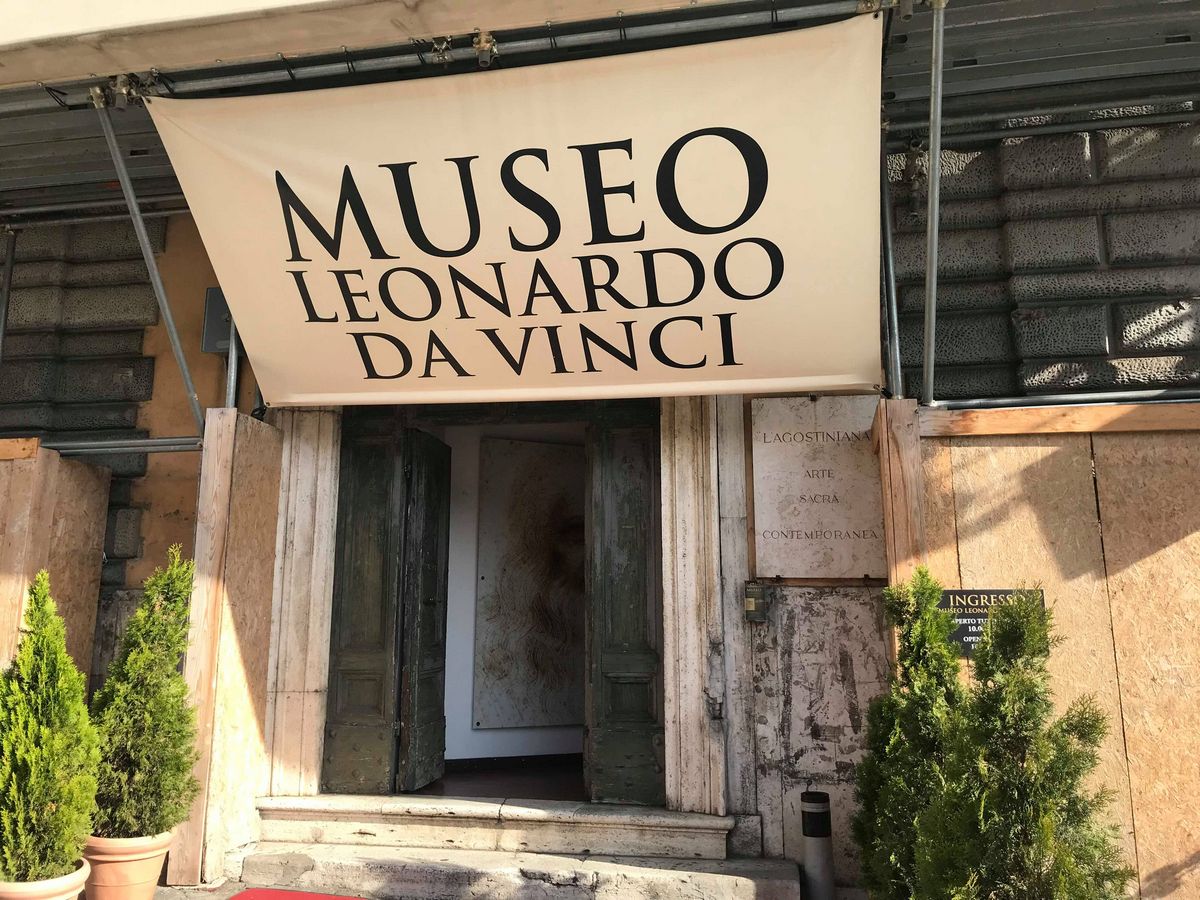
Rome is now home to a permanent museum celebrating the life and staggering achievements of Leonardo da Vinci in engineering, painting, sculpture, and science.
The exhibit has 50 inventions made to Da Vinci’s original sketches, 23 full-scale productions of his most famous paintings including The Last Supper and the Mona Lisa.
By creating his inventions to his specifications and recreating his paintings with the same materials, visitors are brought back five centuries to when Da Vinci passed away in 1519, to relive his genius. The interactive, multimedia journey complete with holograms and audio recordings is a fascinating tribute worth seeing if you’re a fan of the greatest Renaissance man.
21. Bocca della Verita
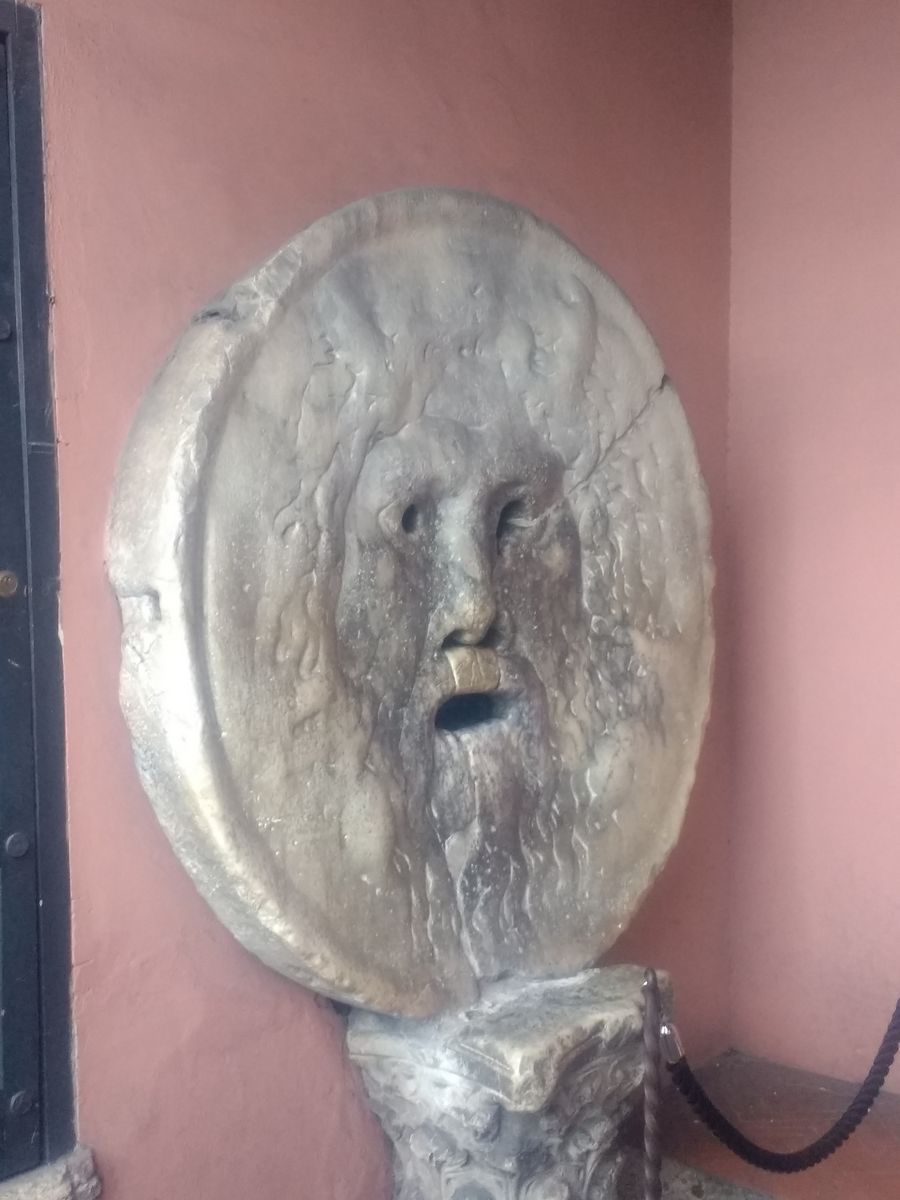
This large marble mask has been intriguing visitors and Romans alike since 1632, and even more so since 1953 when Audrey Hepburn and Gregory Peck visited it in the romantic classic Roman Holiday. Its name literally translates as “mouth of truth”.
The most popular of several legends about its origins is that Roman merchants used it to swear honesty about their trades when bringing them into Rome. Anyone who must show a truth – marriage or business fidelity etc. – puts their hand inside speaks their piece, and if they lie, the “mouth” eats their hand.
Now you have to also feed it a little of your money (€2) to have a photo taken with it. This is definitely one of the most fun things to do in Rome.
22. Catacombs of Domitilla
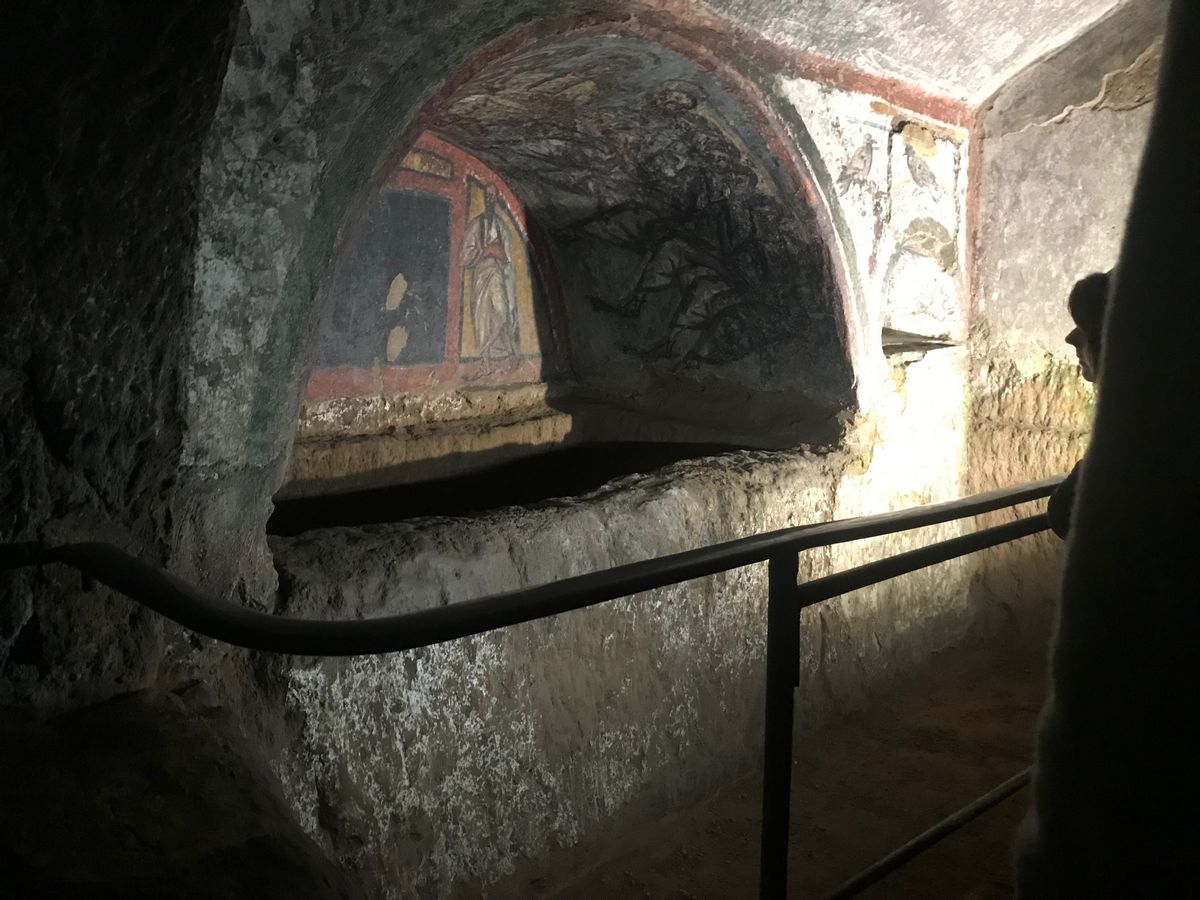
Rome has a lot of underground cemeteries, which are home to thousands of the Christian dead from the first century on. The Catacombs of Domitilla is my choice of catacombs to visit, because it is the largest – with 7.5 miles of tunnels of graves, goes down 45ft underground, and has over 26,000 souls entombed there, and the quality of the tours.
Located about 2m south of the Appian Way (Appia Antica) it is worth it to add to your itinerary when you are in this area.
Book your guided tour online or when you arrive, and in high season, definitely book in advance. You can’t go in by yourself, and with good reason – 7.5 miles of tunnels is very easy to get lost in!
23. Domus Aurea
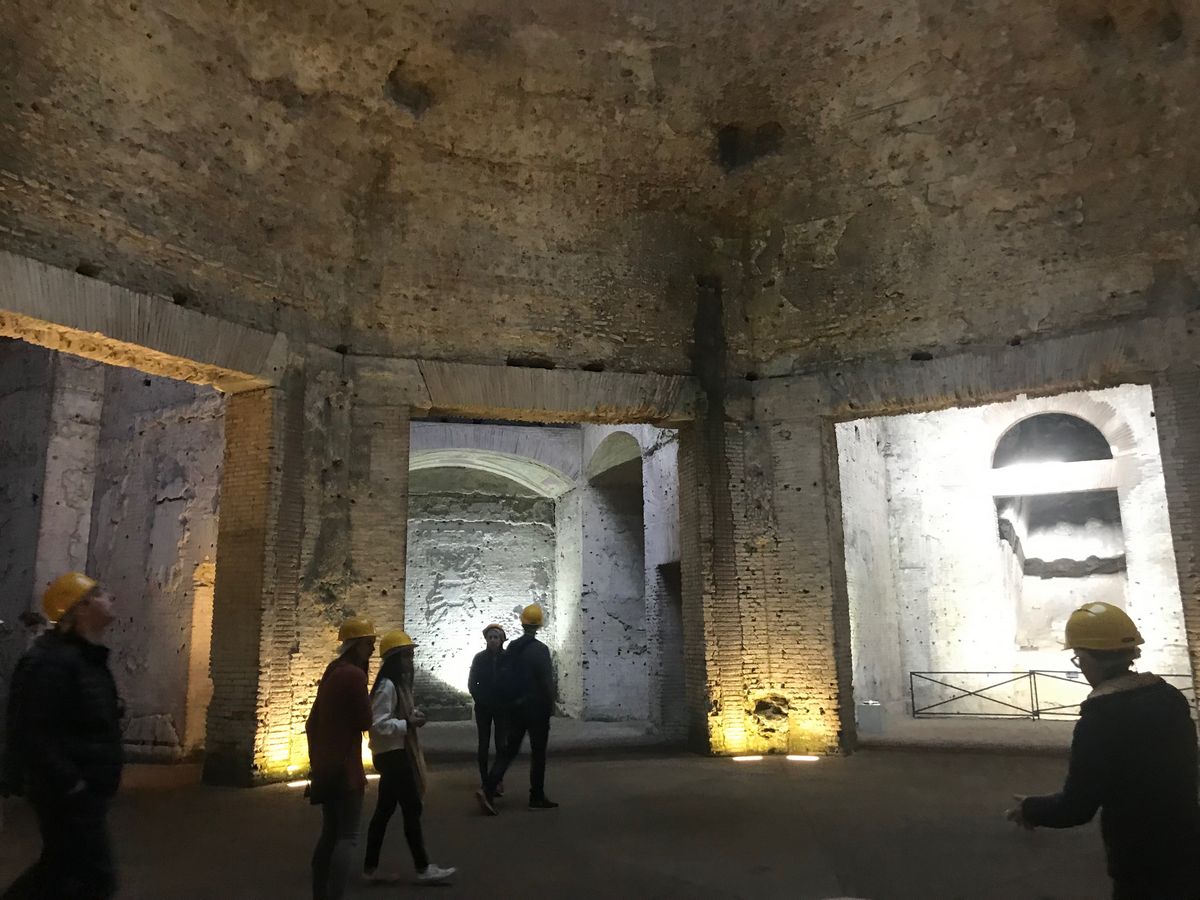
In 64AD Emperor Nero used the great fire of Rome as an excuse to have an extravagant palace built. The 300 acre complex on Esquiline Hill had three buildings with 300 rooms decorated in gold leaf, semi-precious stones and frescoes painted by the day’s greatest artists.
Lavish gardens, an oculus-topped octagonal room, fountains galore, and a colossal 120ft bronze statues of himself in the vestibule completed the ostentatious design. 2002 saw archaeologists begin excavations in earnest and has been regularly open for tours since 2015.
Seeing two-millennia-old frescoes, the stunning octagonal room, and using virtual reality headsets and multimedia installations to help you literally see what it was like when built, makes this a very special sight to see.
Our 1 Money-Saving Tip in Rome
The best way that you can save money and see all of the sites is to get yourself an Omnia Multi Pass/Roma Card
You can get it for 3 days and it includes all of these and more:
- Enjoy fast-track entry to Rome’s historic sites, such as St. Peter’s Basilica, the Vatican Museums, and the Colosseum, with a 3-day combined city pass.
- Also, take advantage of FREE UNLIMITED PUBLIC TRANSPORT.
With only having a short amount of time this will help you get around quickly and skip the line at a bunch of places. Definitely worth it. Book Your Omnia Pass Now!
Where to Stay in Rome?
To find the best Place to Stay in Rome by Neighbourhood, click on the links below. They will take you to a break down of each are of Rome and suggested hotels. Karen gave an in-depth breakdown of all the neighborhoods in Rome:
For more Rome Planning, read these in depth guides:
How to Get to Rome
Rome has not one, but two, airports — Fiumicino (FCO) and Ciampino (CIA) — and they’re both international. We recommend taking either a private transfer or the train. Or you can opt to take an Uber. The Private Transfer will cost about $50 USD one way and an Uber will run you a minimum of 40 Euros.
The normal, Regionale train leaves from the station at Fiumicino, it takes half an hour to get to the city center. It costs just €8 one way. You can book a high speed. But be warned, it doesn’t go to Termini. Instead, it makes several stops in Rome, including at Stazione Ostiense—probably the most useful if you’re staying in the Centro Storico.
I will never tire of Rome because there’s always something new – well often old that is new to me – or actually brand new to see. The ancient sites never fail to impress, and the fact that it is such a trendsetting innovative modern city as well makes it so impressive, and I think appealing to everyone.
Ciao Bella Roma…for now.
Plan Your Next Trip to Rome With These Resources
- How to Visit Rome on a Budget in 2022
- 9 Interesting Facts About Rome, Italy You May Not Know
- Where to Stay in Rome – A Guide To The Best Neighbourhoods
- 3 Days in Rome – The Ultimate Rome Itinerary
- 20 of the Best Free Things to do in Rome
- Places to Visit Near Rome – 10 off The Beaten Path Destinations
- Ancient Rome in Photos

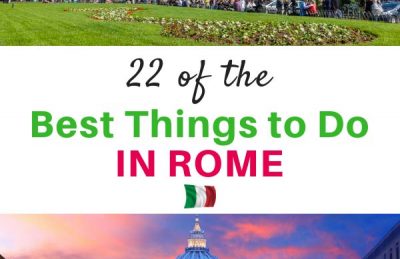
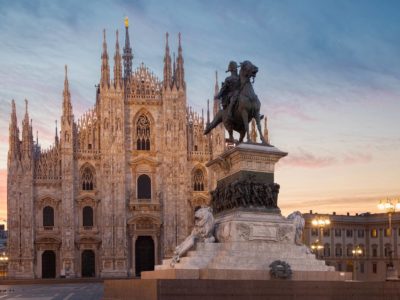
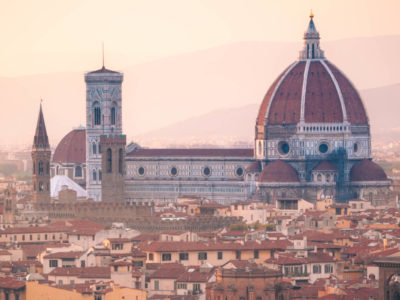
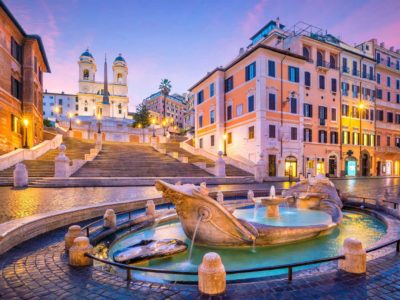
Yes indeed. Very comprehensive list of best things to do in Rome.
Rome is a lovely city indeed. I’ve been to Rome with my spouse last year but have not gone to some of the places that you mentioned. I’ll need to make one more trip to Rome to see these places.
Thanks for sharing!
Hello Karen,
Great post! Very comprehensive list of best things to do in Rome.
Rome is lovely city indeed. I’ve been to Rome couple of times but have not covered some of the places on your list. I’ll need to make one more trip to Rome to see these places.
Thanks for sharing!
Hurrah! Finally, I got a website from where I am capable of actually taking helpful facts concerning my study and knowledge.
at our website
A good overview of all the main attractions. Visited Domus Aurea last year for the first time and I’m glad to see you placed it so high in the list. Another interesting sight when you are on a Saturday morning in Rome is the Colonna Gallery, a beautiful palace with an amazing art gallery.
Dear David and Deb,
Being the newly added participant of your blog I want to say thank you for an amazing and useful experiences that you share with us.
I am planning to go to Rome for the first time in April for 3 days. What would you recommend me to visit? I think it is not possible to go through all of the 22 places, is not it?
Thank you
Perhaps someday I’ll consider travel to different countries.
Great blog. The captures are lovely. Thanks for sharing.
I love how detailed this is! I enjoyed Europe when I was there and once I get back, I really want to see Rome. I’ll definitely be saving this post. The picture of Palatine Hill is absolutely gorgeous. Looks like something out of a story book.
As for food, I of course will gorge on all the pasta I can get but I’ll also look for some Coda Alla Vaccinara. 🙂